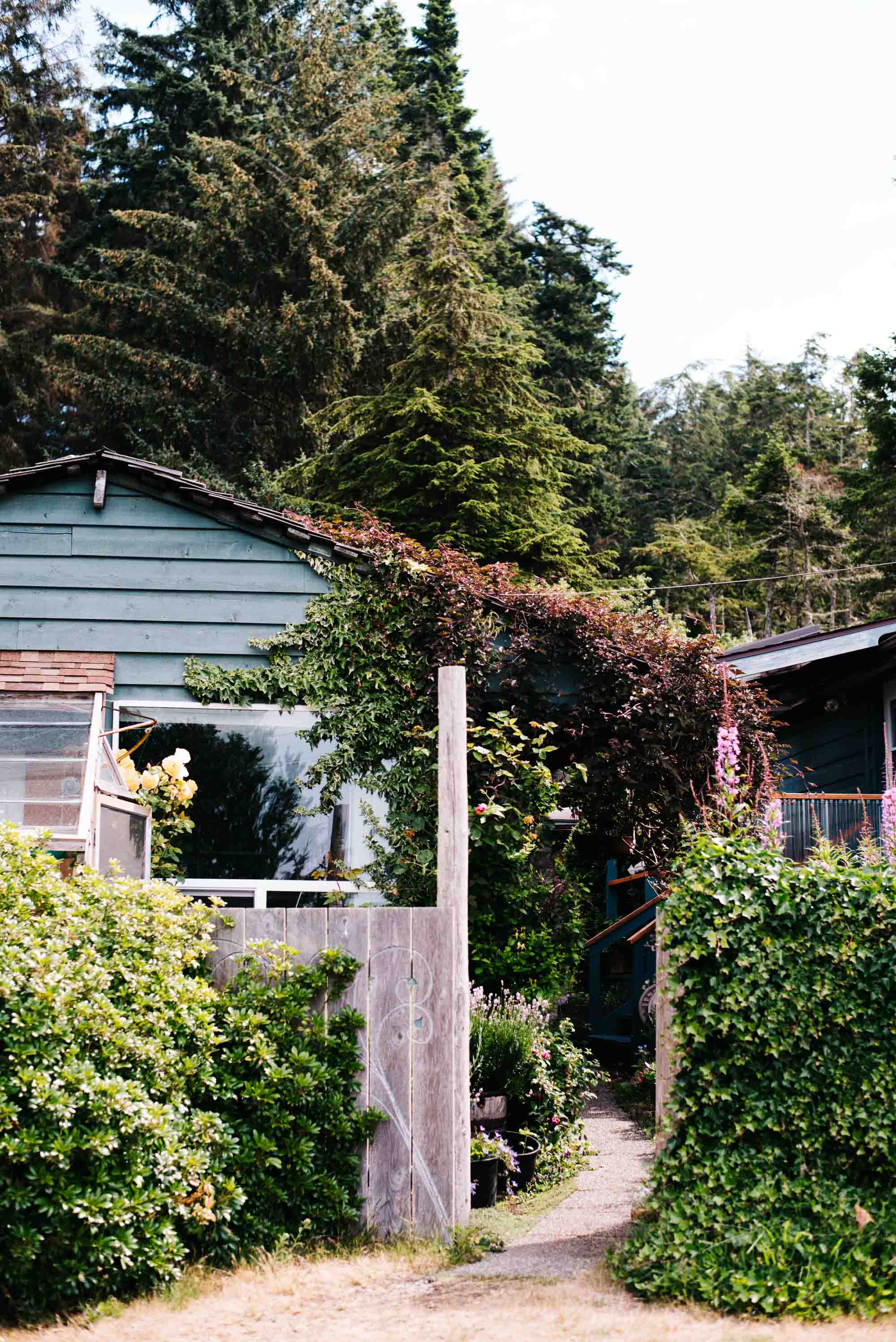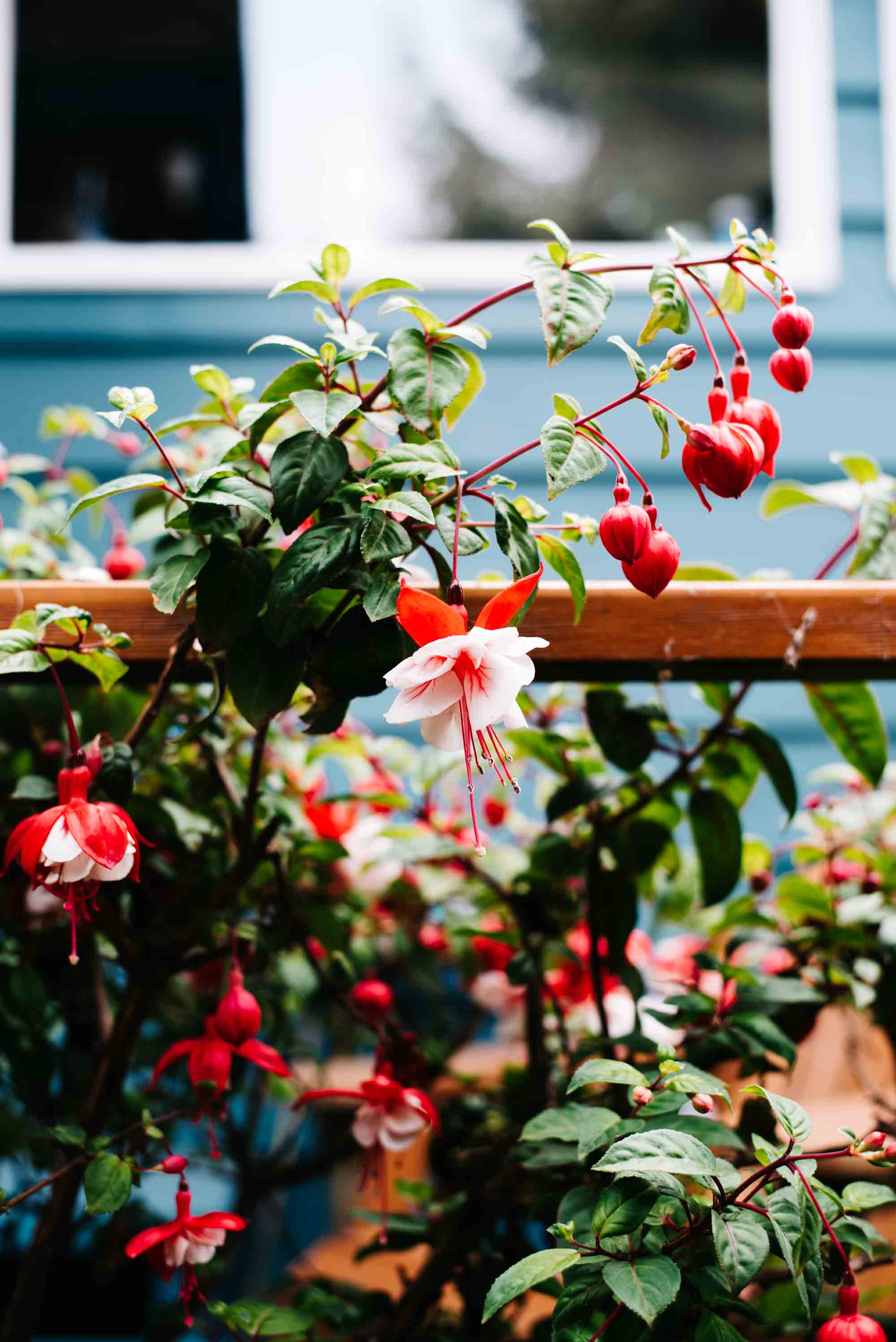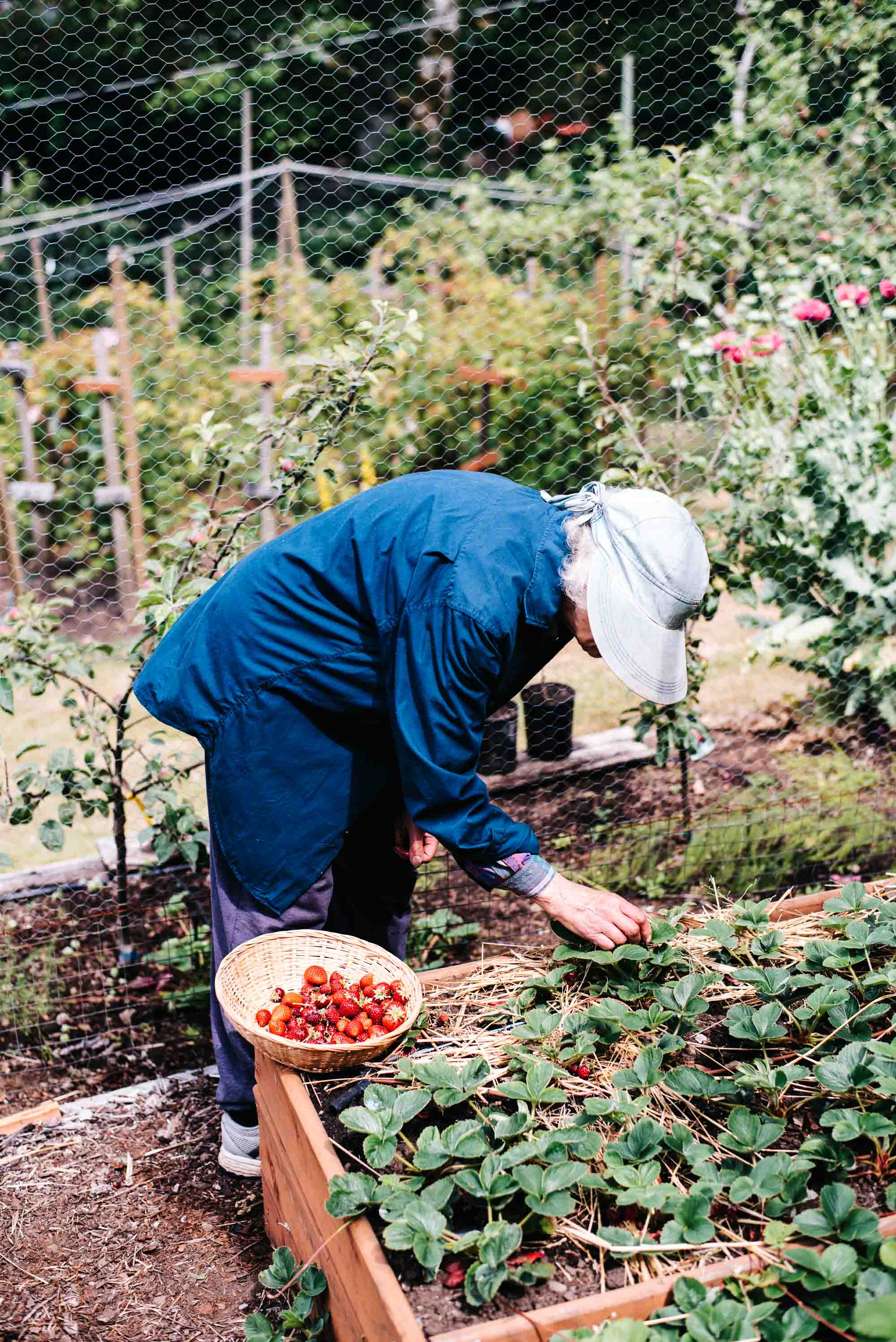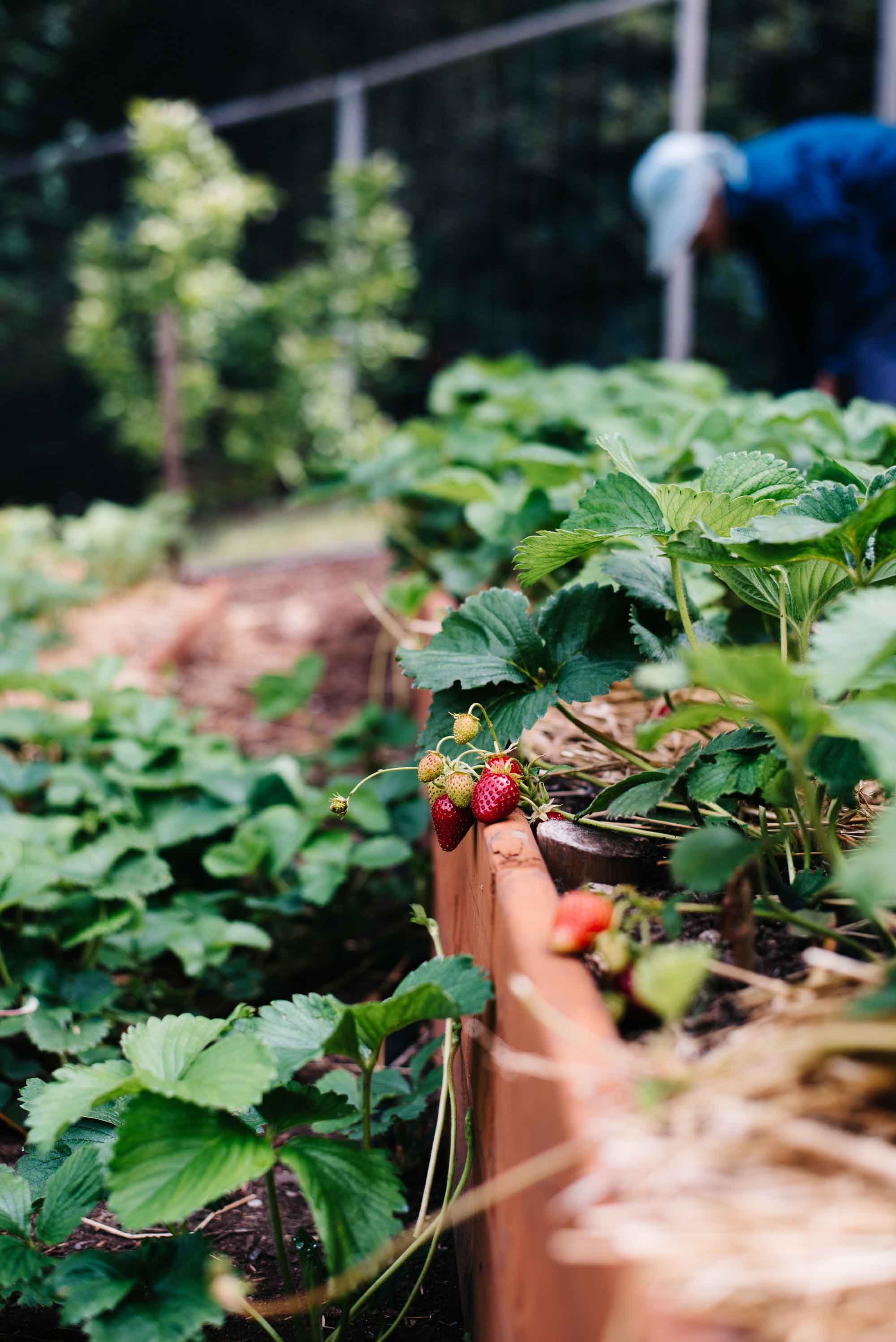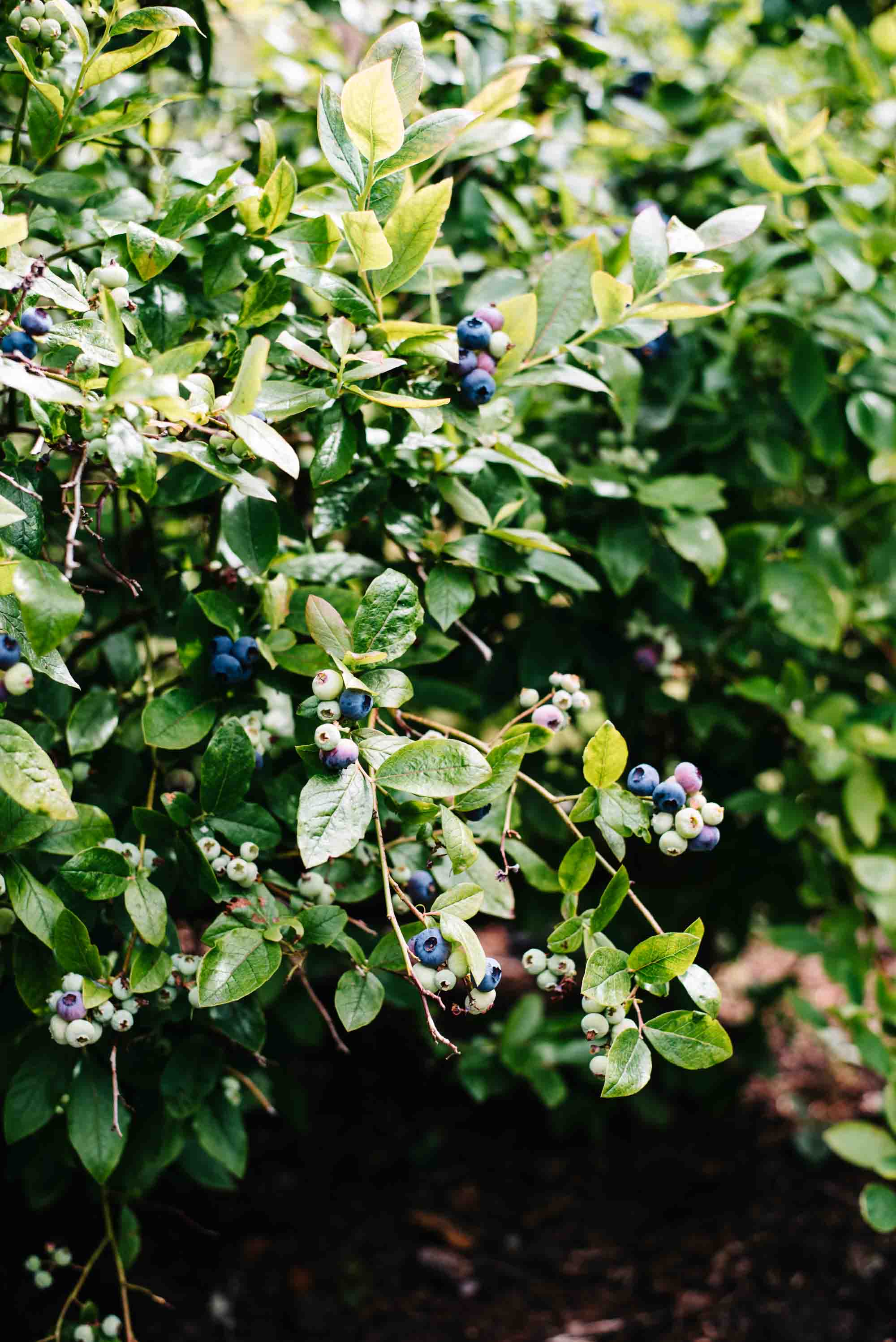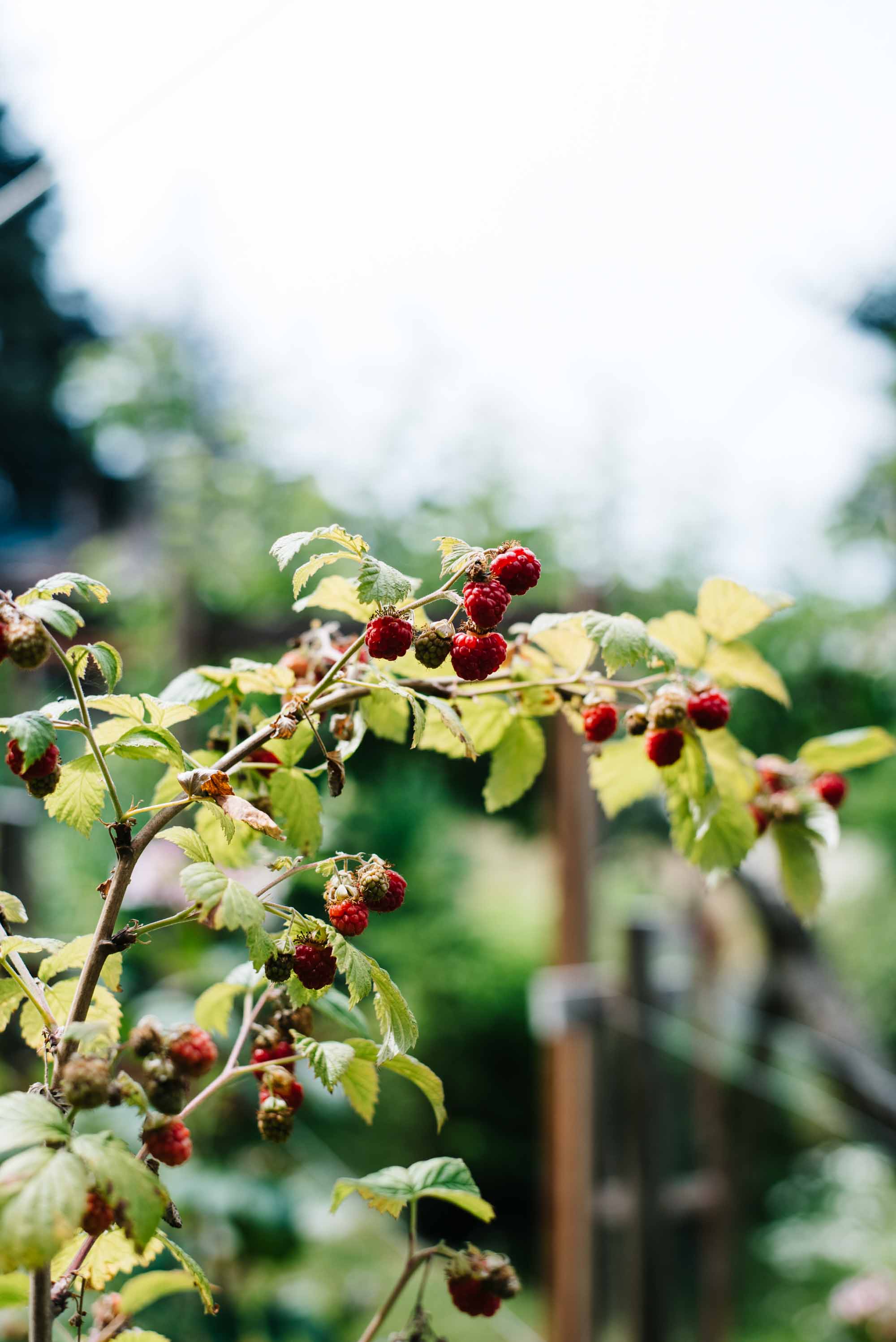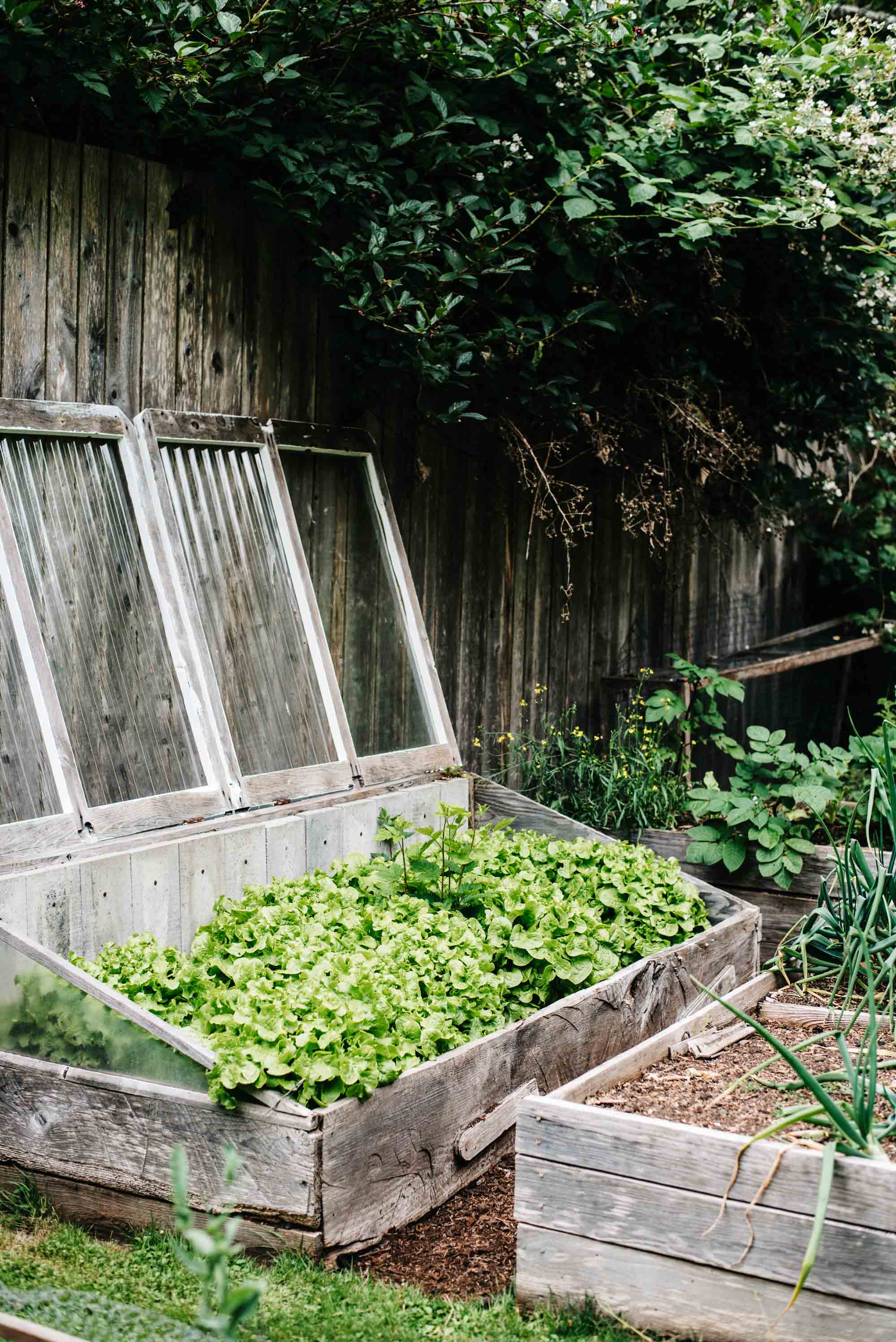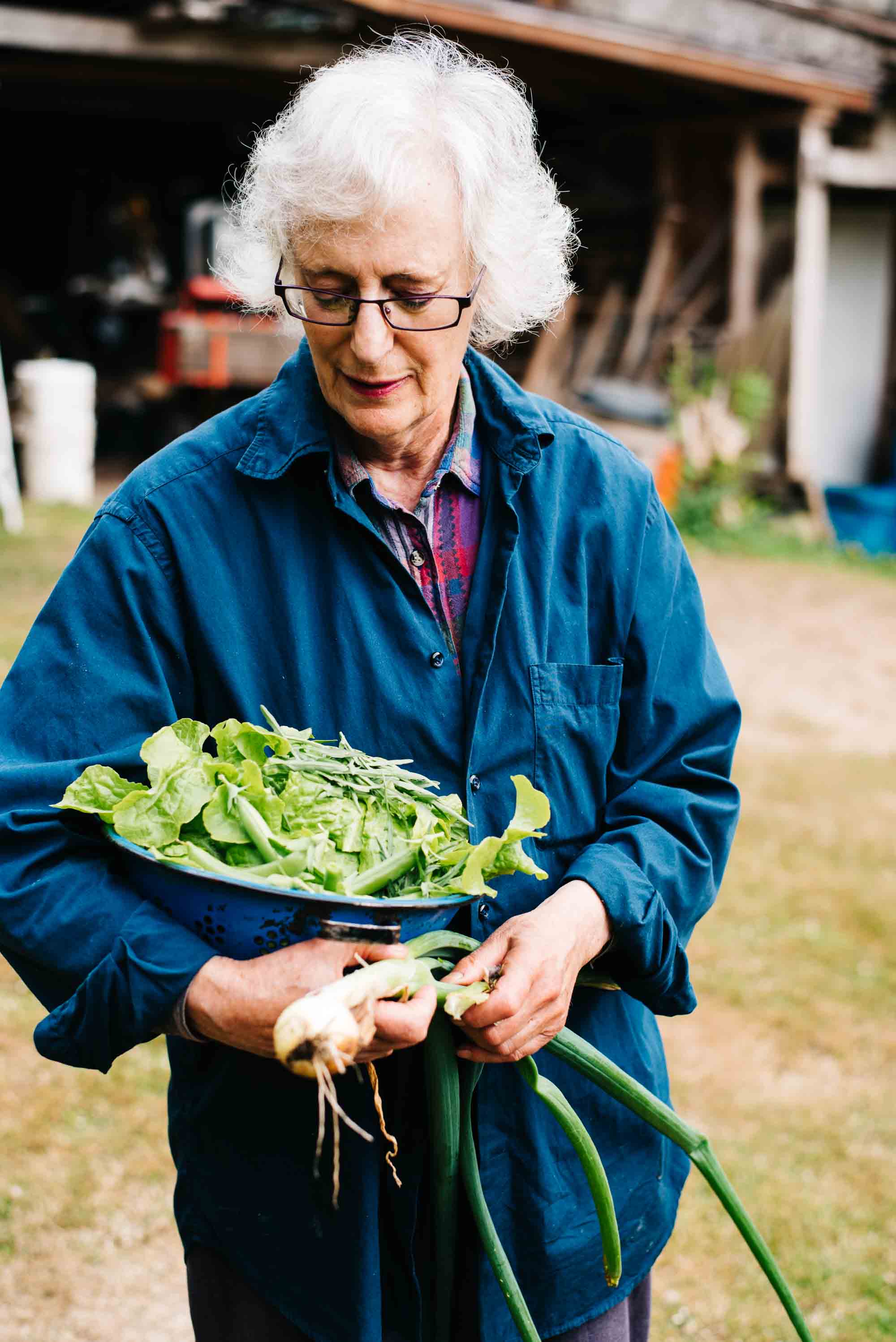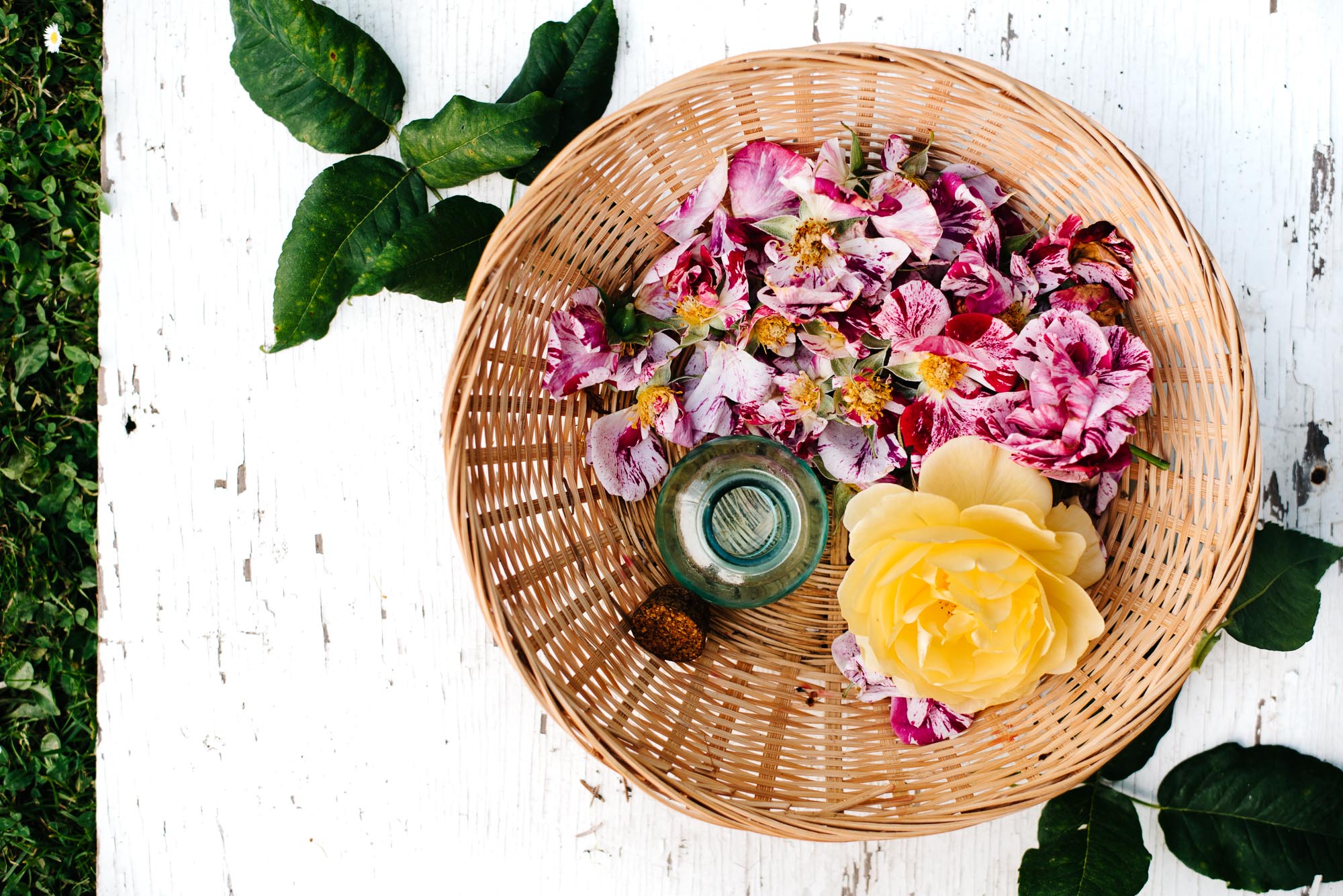
We had two days to harvest strawberries, rhubarb, and roses. Distill rosewater. Make compote. Check on the raspberries and blueberries. Brew a new batch of kombucha. Bake bread. Forage seaweed from the Strait of Juan de Fuca. I was near Otter Point on Vancouver Island, where my Aunt Wendy has lived for forty-five years. She’s been in Canada for forty-eight now, and—despite her Indiana roots—has sworn off the US for good. When we talk politics, she shakes her head and covers her eyes with earth-worn hands. The thought of it is almost too much to bear. Instead, there are broad beans, snap peas, a bed of lettuce that could feed a village.
Wendy’s life on the homestead she and her partner Rod fastidiously tend to is calm, prolific. She is a retired private investigator and a poet, the recipient of numerous awards for her writing and civil service. He, too, is retired, spending his time immersed in biofeedback research and practice and homestead maintenance. The first night I arrive, Rod gets right to it: “How much time in a day do you spend looking at screens without an awareness of how it’s making you feel?” He wants to know what we’re going to do about this epidemic of disconnection—from our bodies, our minds, and each other—that tech and screen reliance has fostered.
Together, they’ve built a life that works on a homestead that serves: Wendy can grow anything and Rod can build anything. In between, she writes and leads The Elder Project, and he collaborates with researchers around the world.
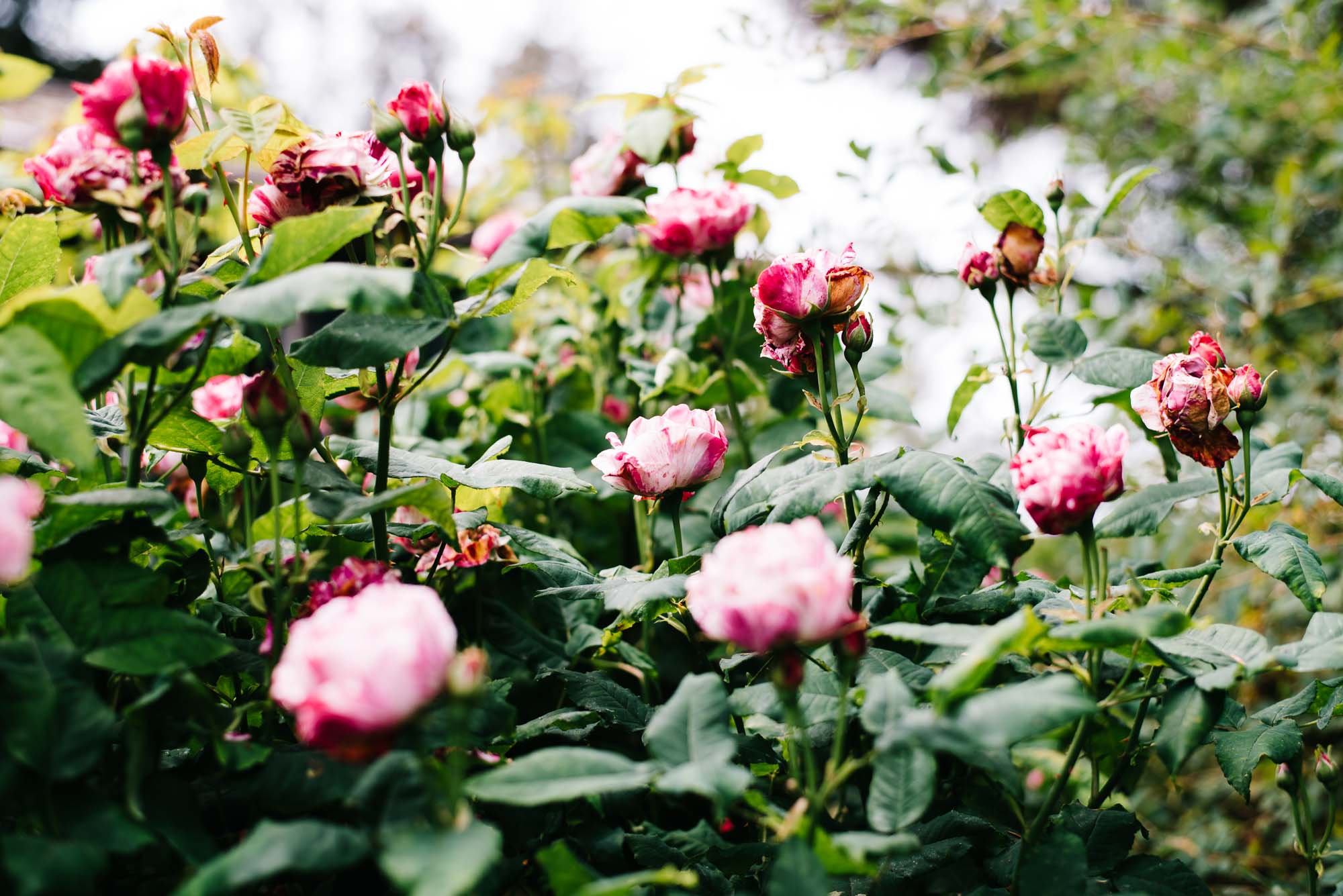
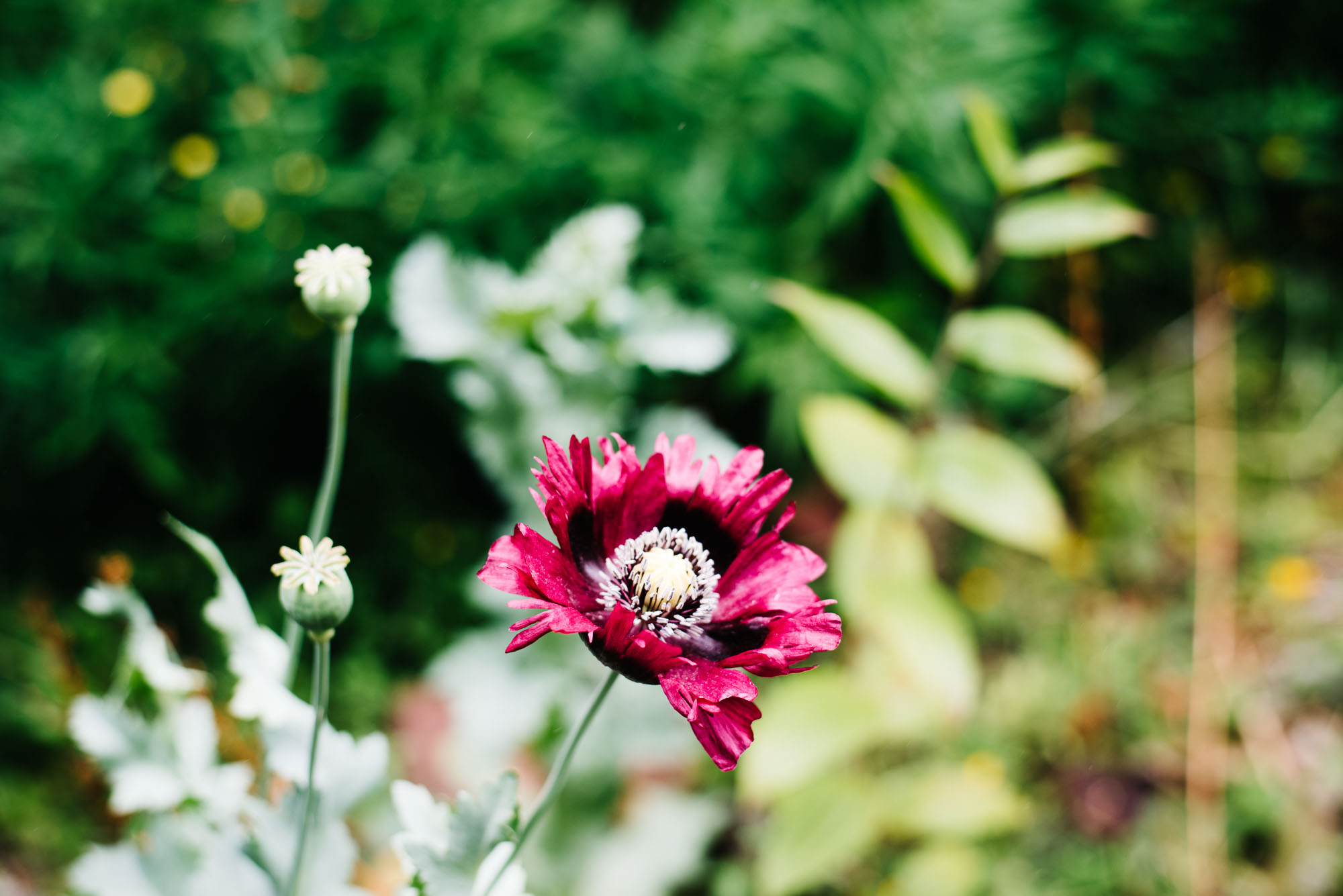
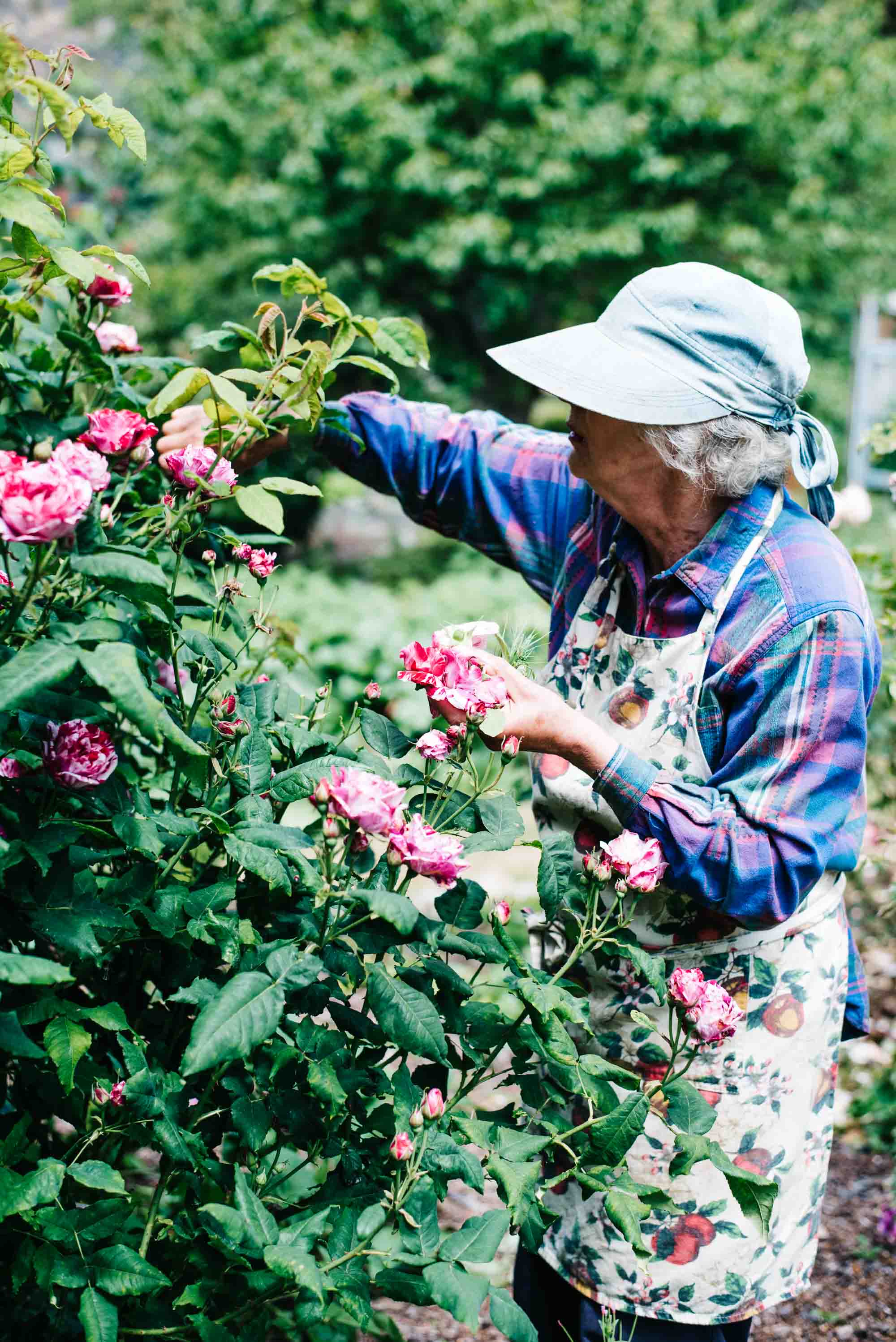
I hadn’t seen Wendy in nine years. The last time I visited, I was coming apart at the seams. It was seven months after my mom (Wendy’s youngest sister) died, and I hadn’t taken time off since her death. My dad was in a new relationship, I had broken up with the boyfriend fell in love with while my mom was dying, and, at 25, I’d begun to feel like a fraud in my day-to-day as a New Age belief-slinging yoga teacher. I missed my mom, my best friend, a lot. The night I arrived at Wendy and Rod’s house in 2009, I slept thirteen hours.
This time, it’s palpably different. Not because of Wendy and Rod, but because I’m an adult. And because my mind is not buried beneath twenty-nine steel plates of grief. I feel like I’m experiencing their world for the first time. The tenderness in every plant and flower, the jaw-dropping expanse of manicured garden. Everything is alive.
At seventy-seven, Wendy is the master gardener of a plot of land that would make the great British horticulturalists blush. She blends and turns her own compost (the compost pile is her favorite place to pee while gardening—great for the compost, too!), manages weeds and pests, plants, harvests, preserves, and shares the resulting bounty. This is a woman who mills the grain for the bread she makes each week, and forages rose hips in the fall to infuse into her own facial oil.
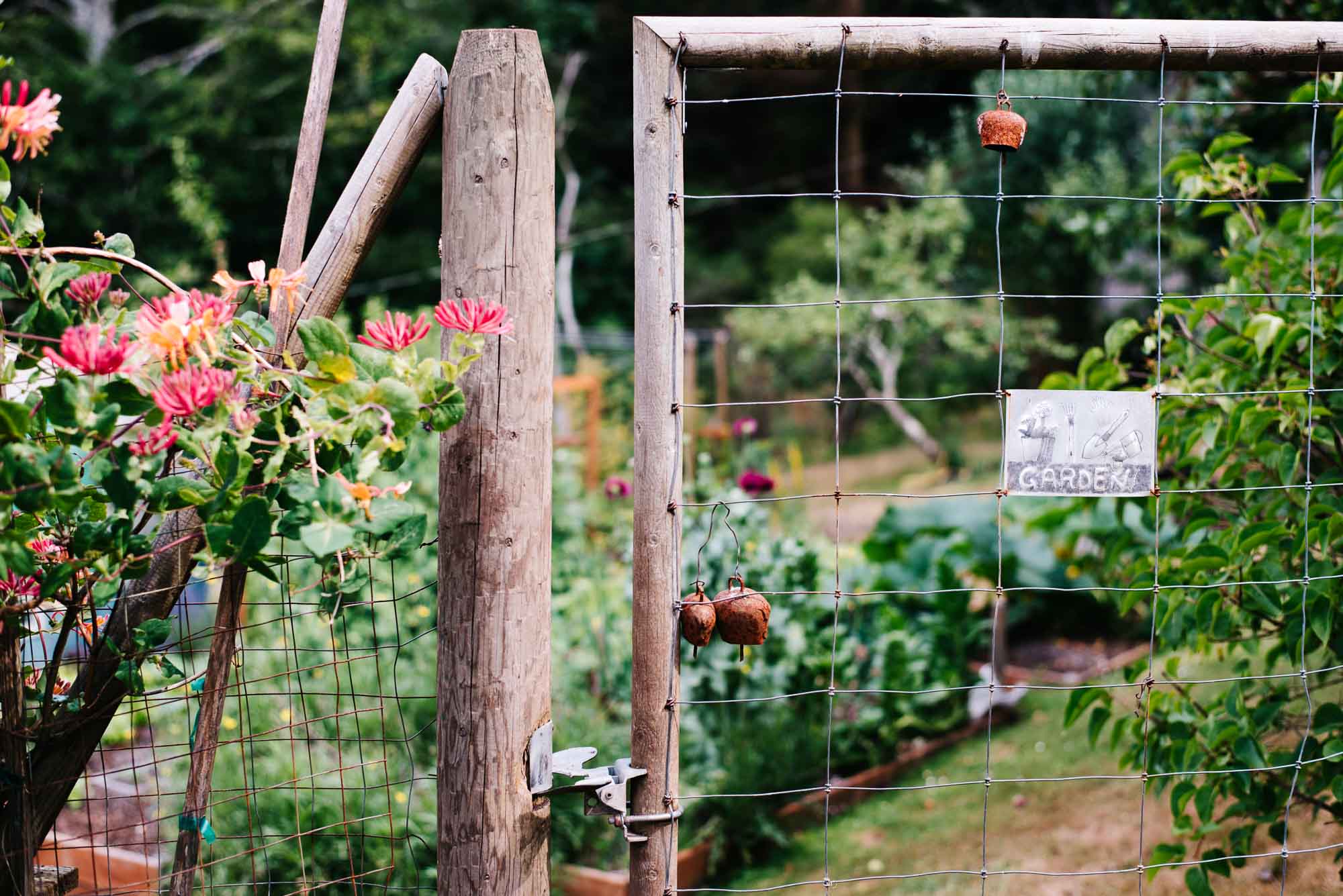
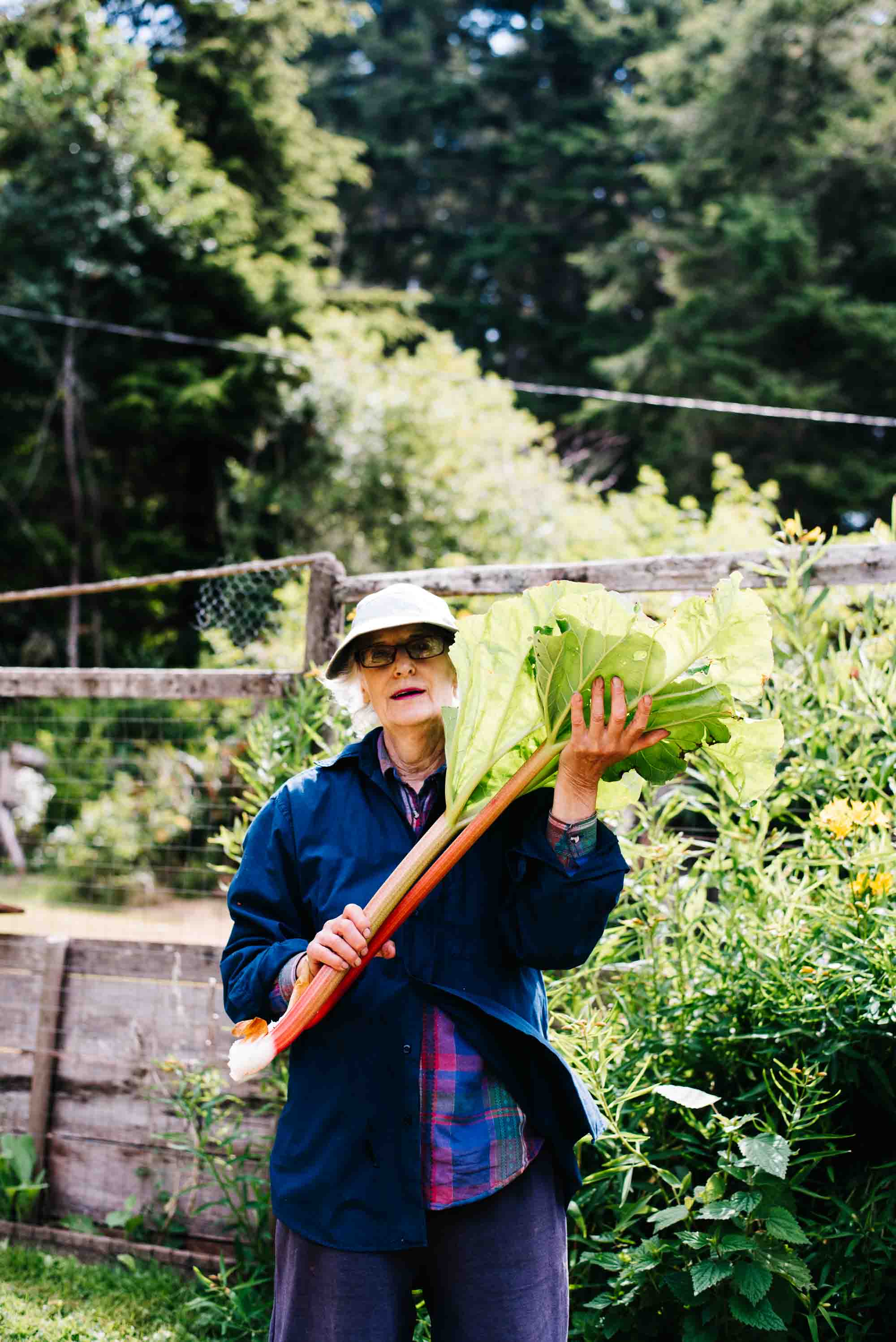
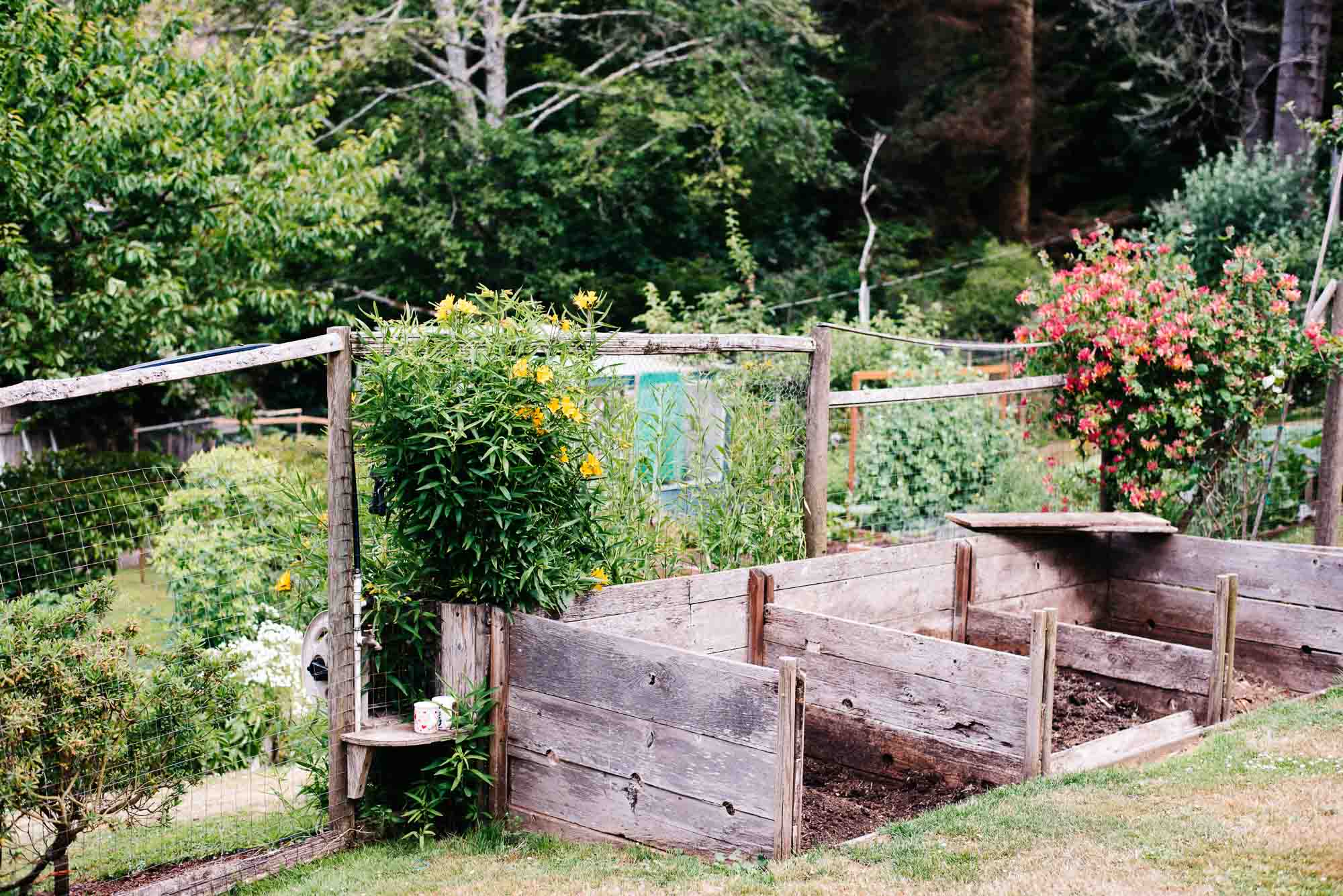
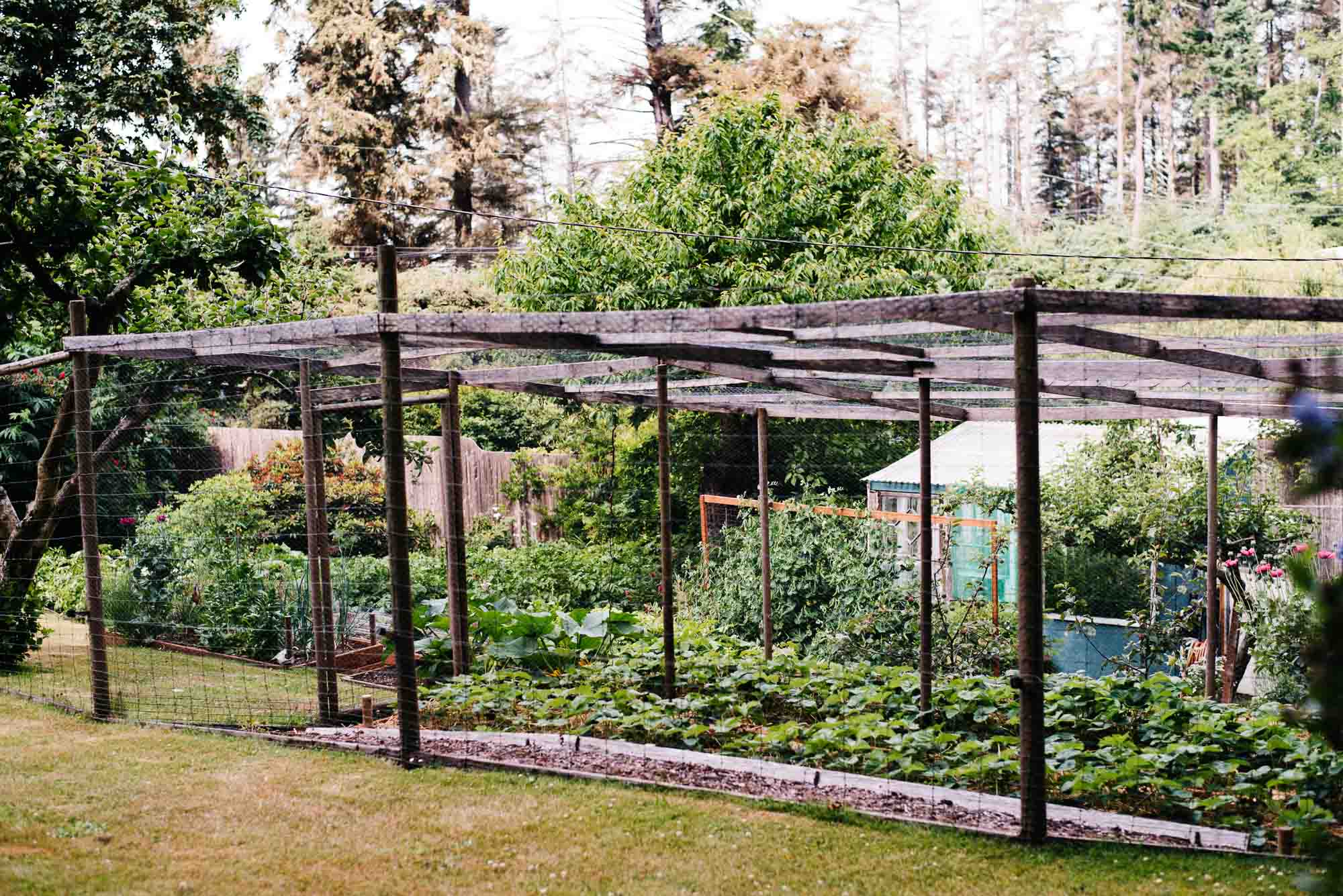
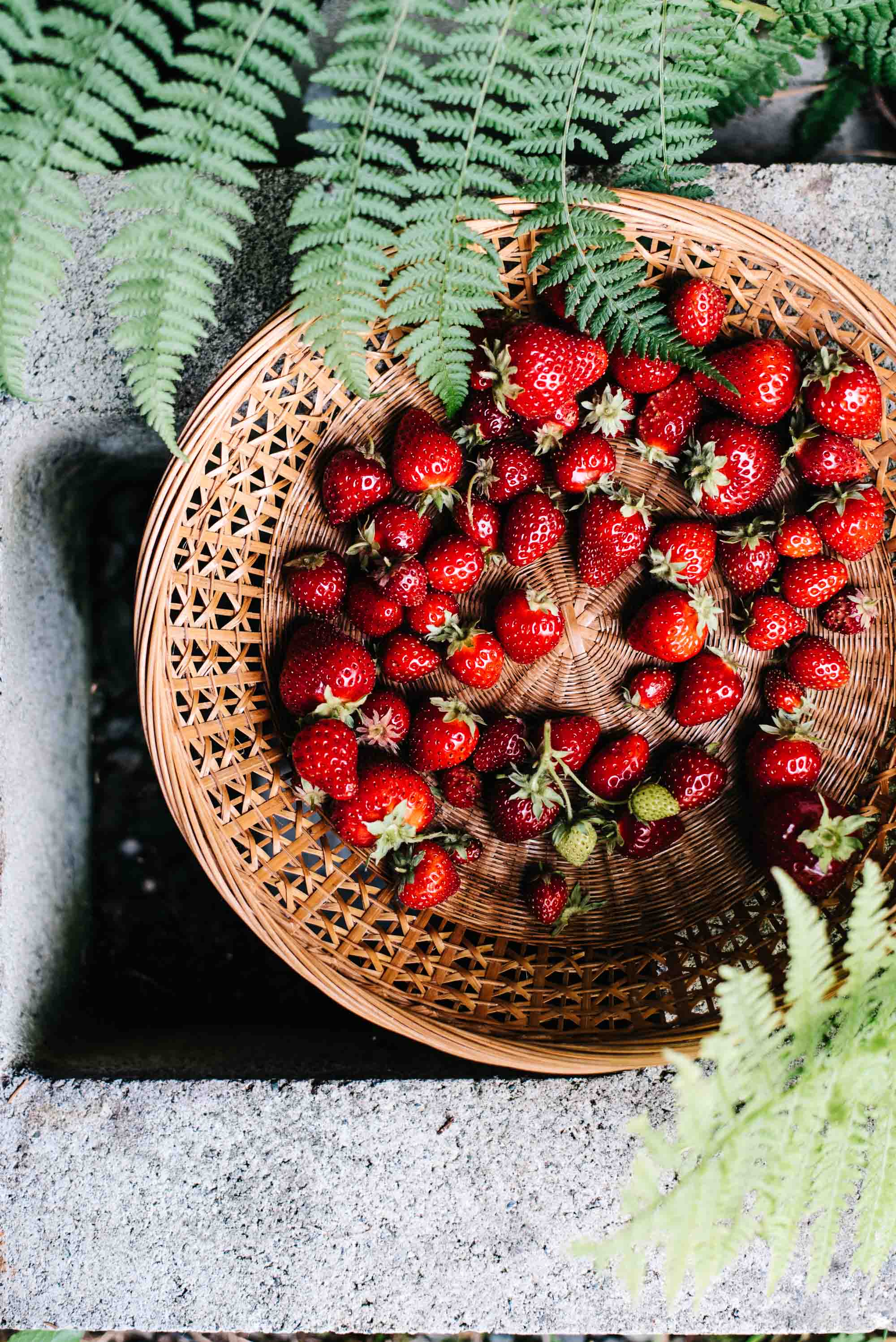
The similarities I see between Wendy, my mother, their sister Cathy, and myself are uncanny. How did we all come to be like this, tethered to nature and the written word? Was it prescribed in our DNA, or a gut reaction to some environmental stimuli in their upbringing that my mother then passed down to me? I see bits of myself in the way Wendy decides what’s most important to her, in her affinity for earth and sky and water and language.
One afternoon, we go down to the water to harvest kelp and write a poem to take to a community poetry reading that night. Wendy covers herself from the sun and brings a pen and notepad in her pocket. As we walk along the shore, rocks jumbling our steps, she jots down notes. What she sees. The absence of orcas in the strait. Smoke in the sky from a wildfire. A piece of sun-dried seaweed clinging to rocks, translucent and brittle as stained glass. At the end of the beach, we sit down and pass the pen and paper back and forth, setting down what’s there, in front of us.
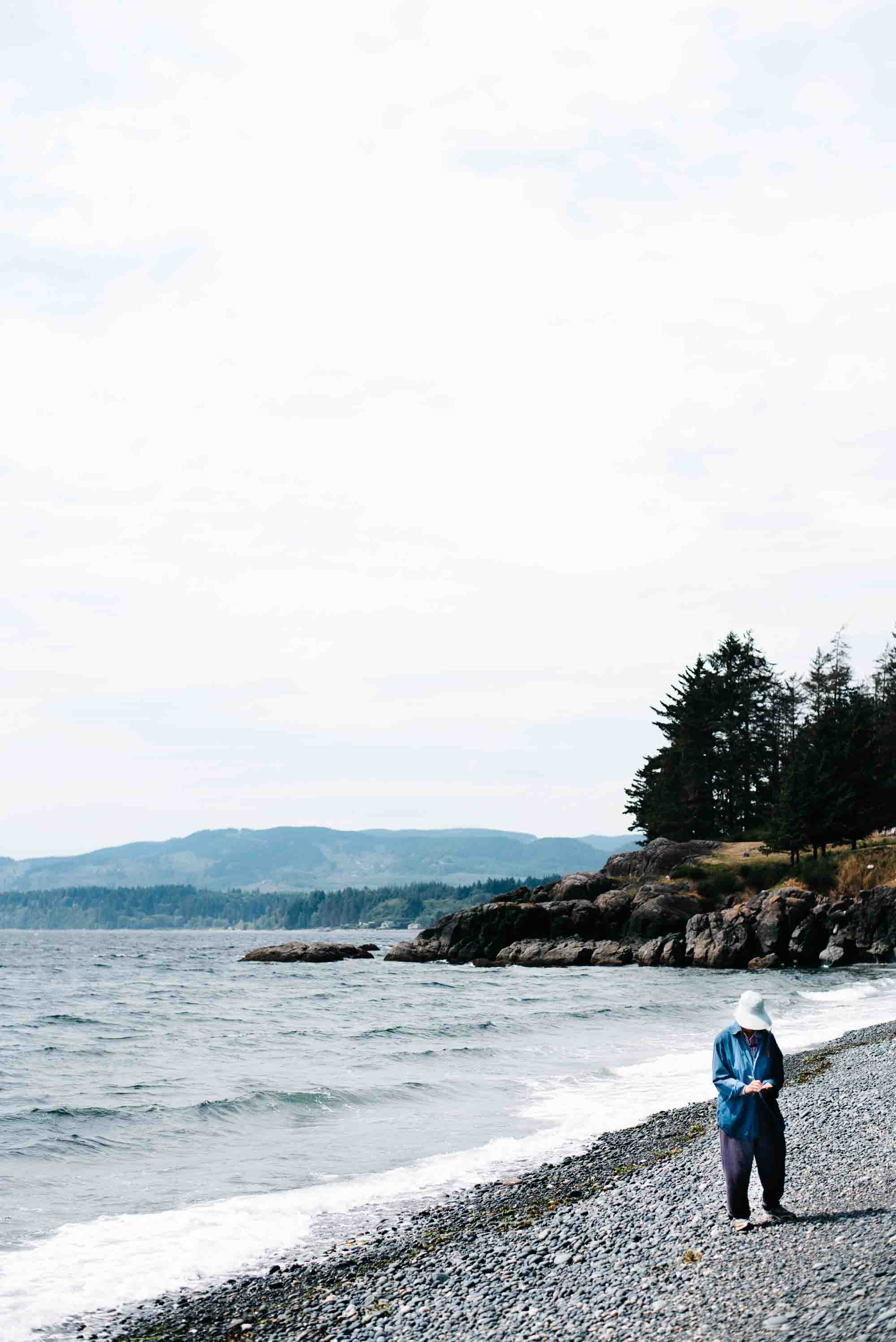
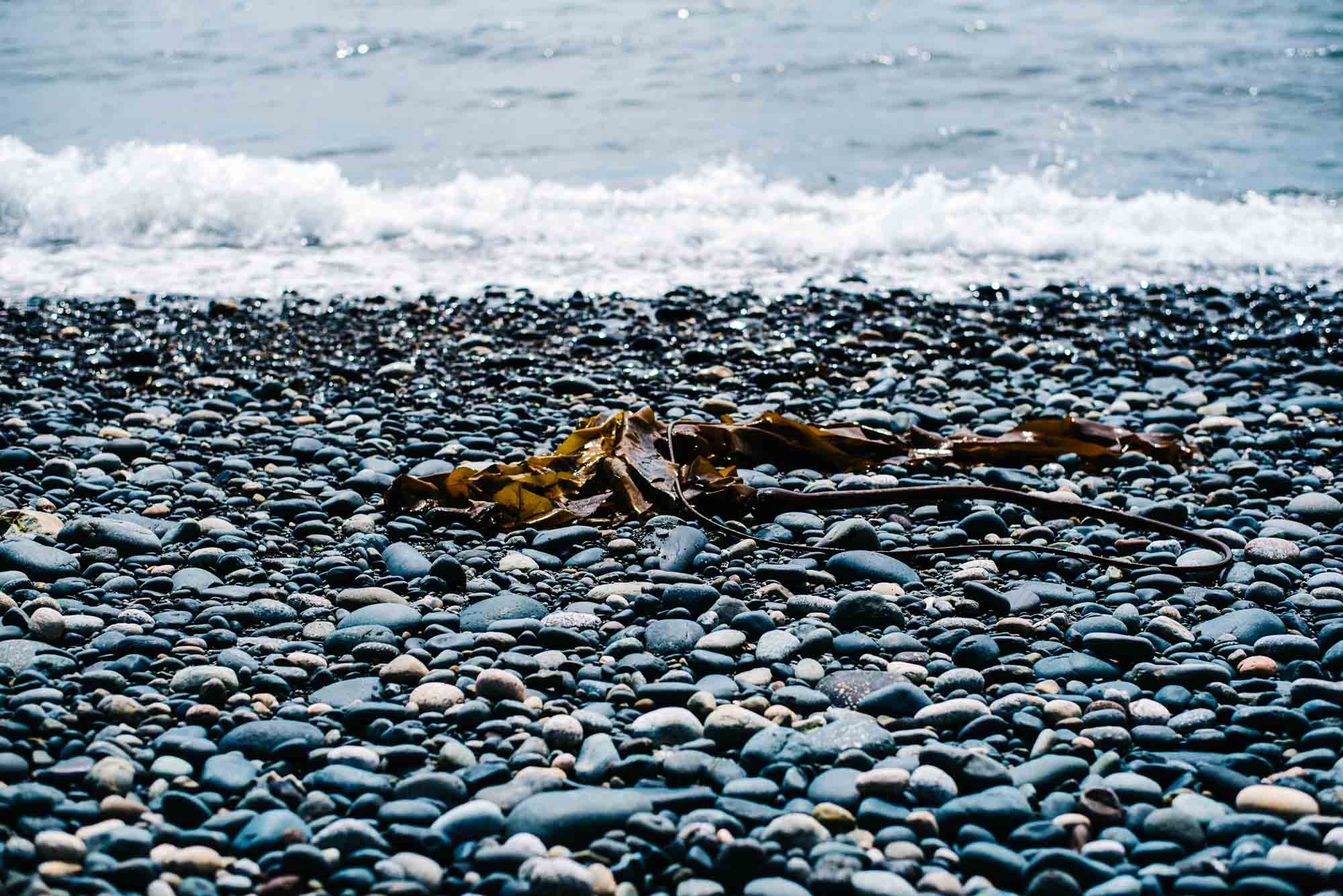
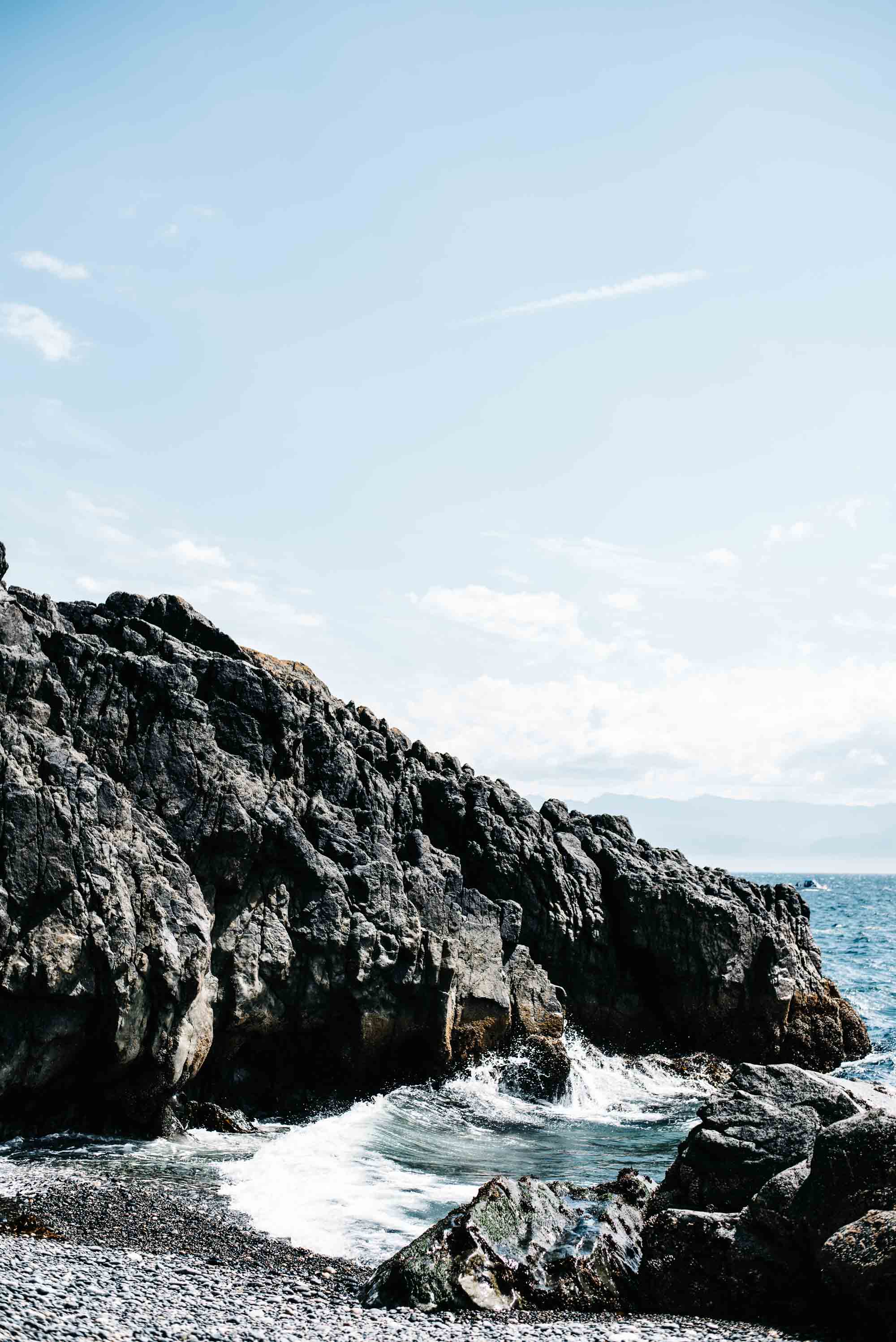
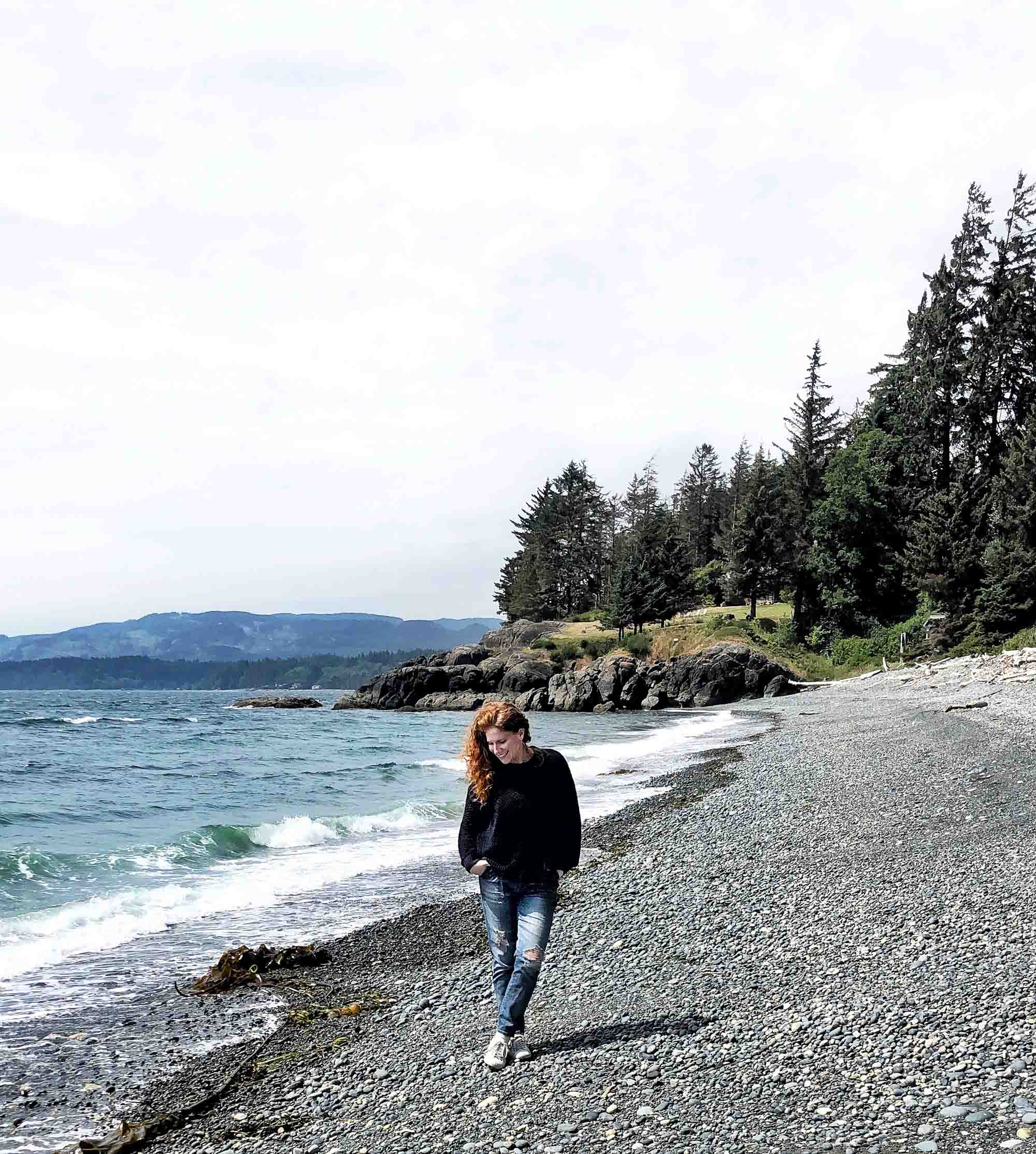
Back at the homestead, before poetry, we make rosewater. She teaches me how to steam distill, which is so much easier than I imagined. I follow her lead as we harvest the roses—no brown bits, at peak bloom—a variety of David Austin rose called Fisherman’s Friend. They are intensely fragrant, enough to leave me insouciant and scatterbrained in the rose patch. Wendy guides me inside, where we pluck the petals and prepare a stockpot for distilling. Over the few days I’m there, I notice that I’m watching her hands as much as anything else. Her hands know the way, with the roses, the lettuce, the pen.
I’ve outlined the full method we used below, in a recipe, so you can recreate it at home. All you need (besides the petals) is a stockpot and lid with a knob that can be removed, the screw ring of a mason jar lid, a small bowl, water, and ice. When we finish, we find tiny bottles to fill up that will fit inside my carry-on for the plane. Even now, the fragrance is pungent.
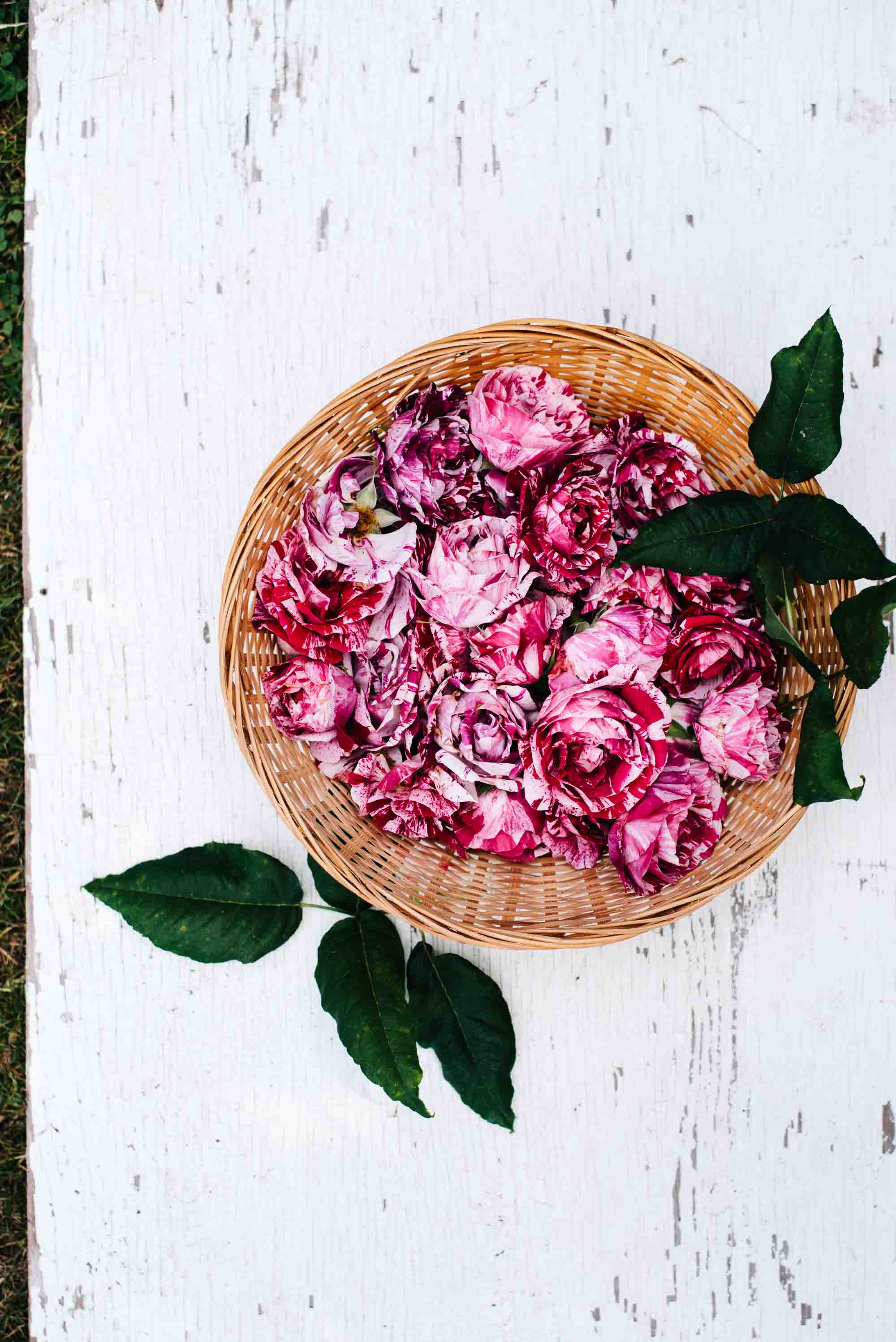
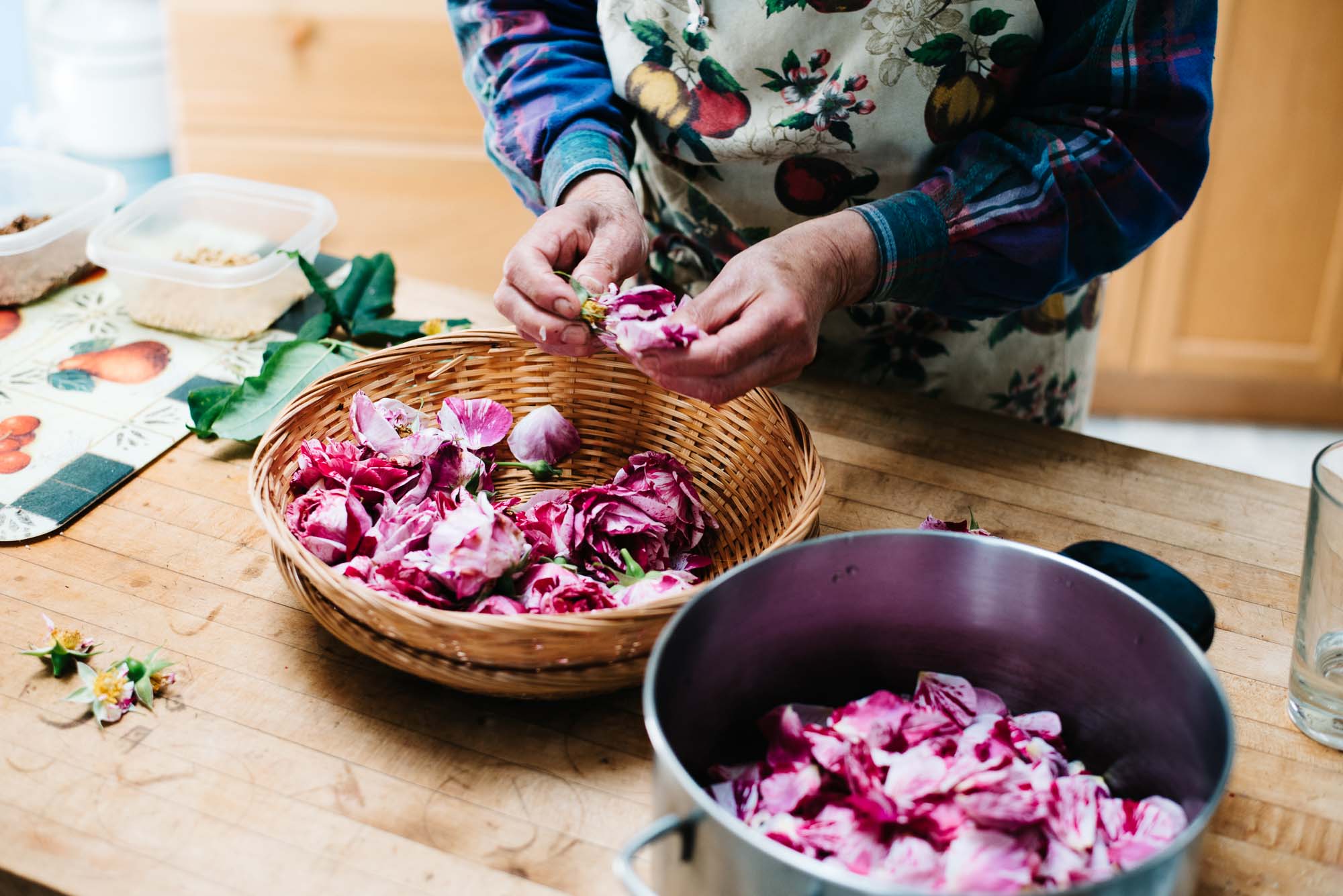
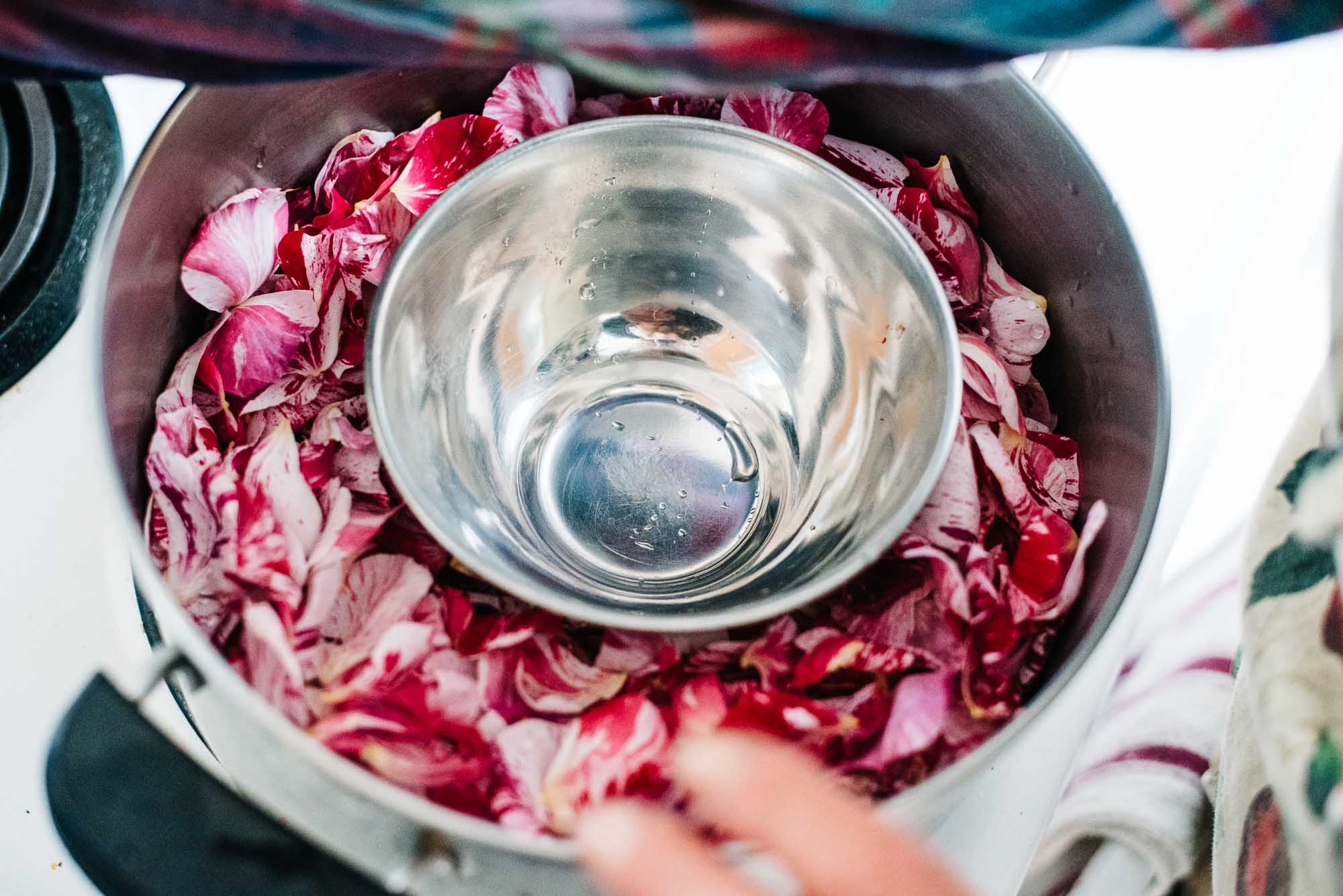
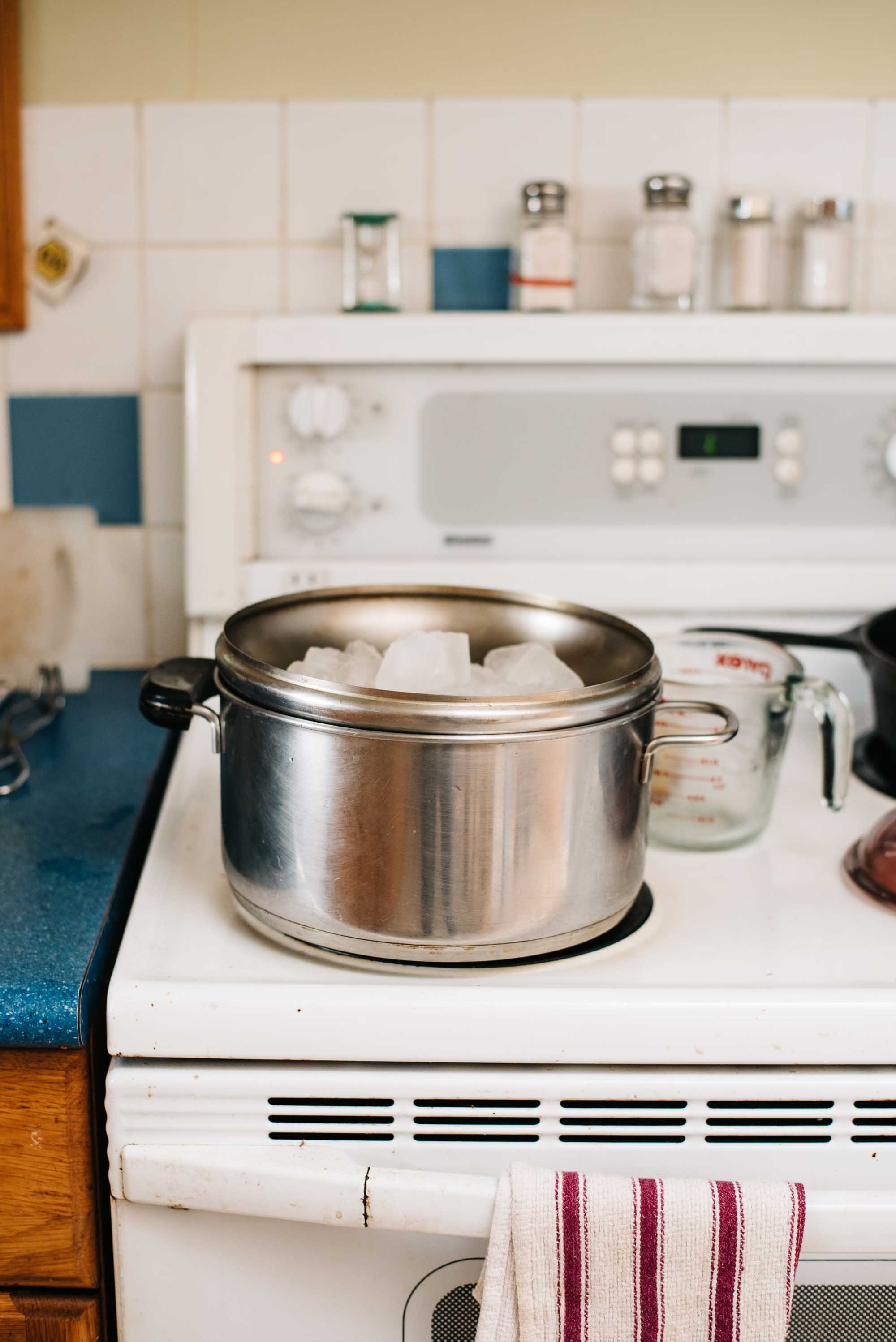
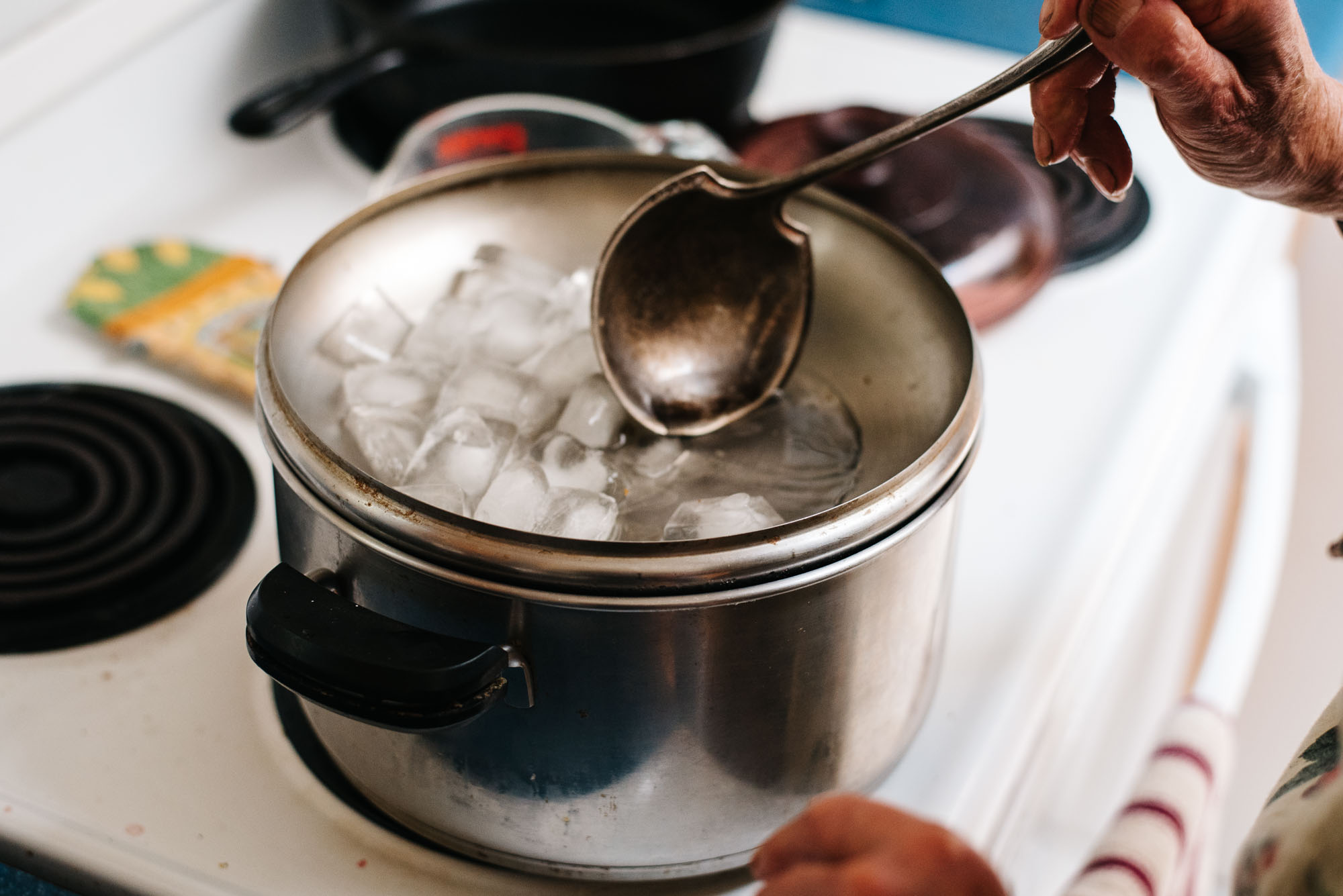
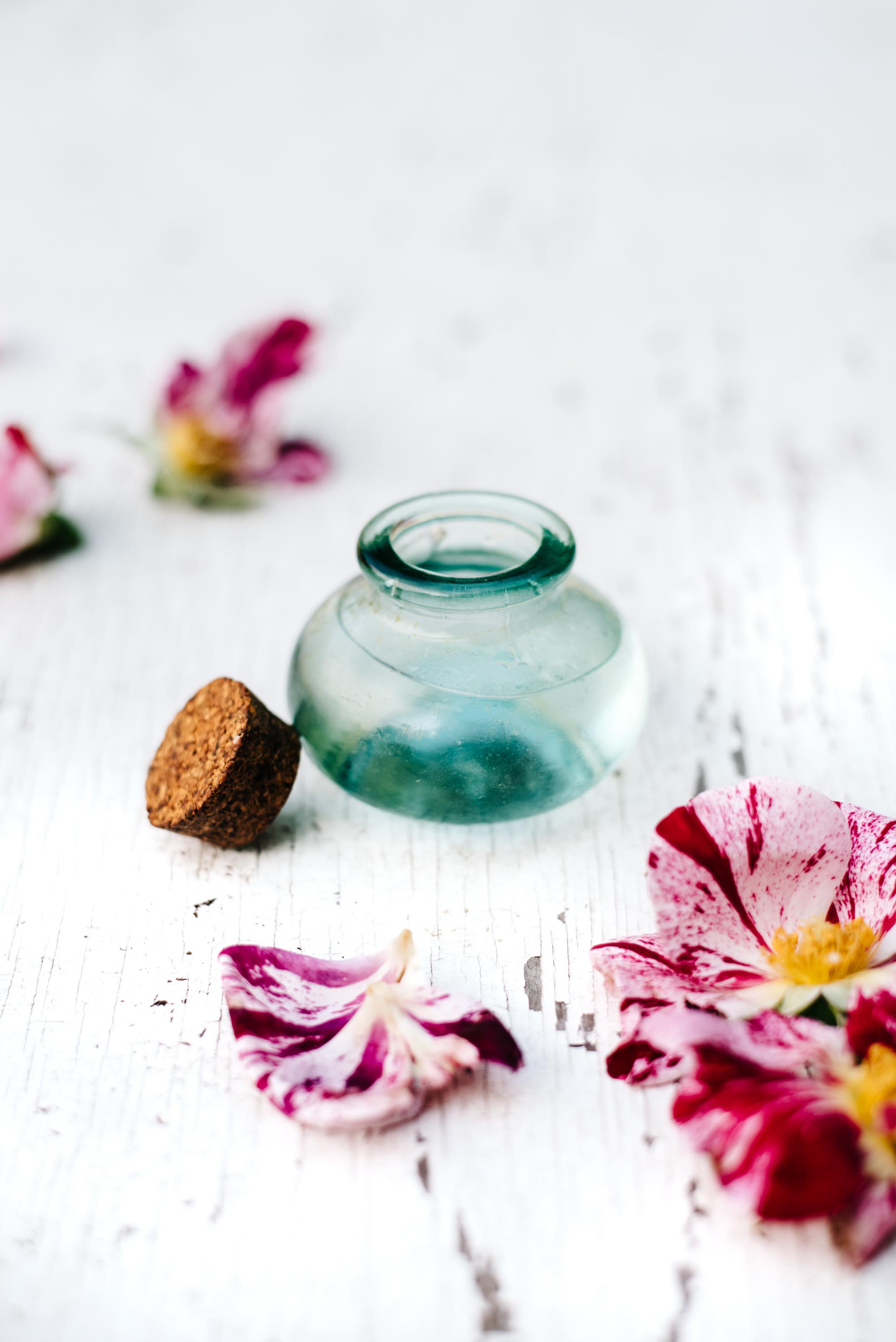
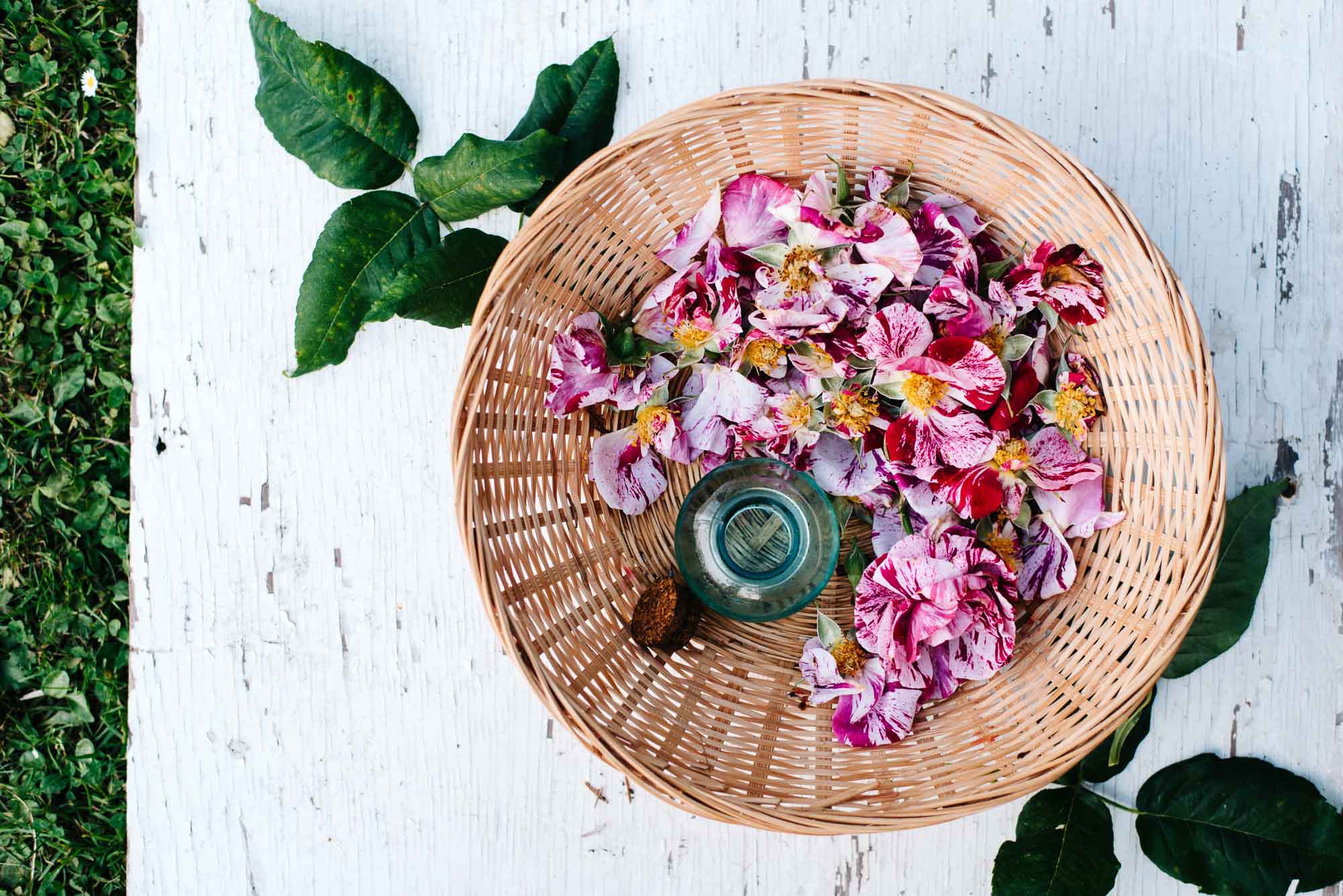
By the time I leave, I am immersed in their rituals: the aged puerh tea Wendy makes each morning to accompany a bowl of preserved fruit and yogurt topped with ground flax and hempseed. The single piece of thinly sliced toast slathered with hummus and layered with havarti cheese and sprouts. The back and forth to the garden. The way the water of the Strait shirrs against the wind at night, noon, morning. The wild blackberries we forage roadside, en route to gather kelp. The ingredient jars labeled MONKEY and ECSTATIC SUITCASE, just because.
The dirt and fruit and poetry. The little buck waiting for me on the path when I wake up in the morning.
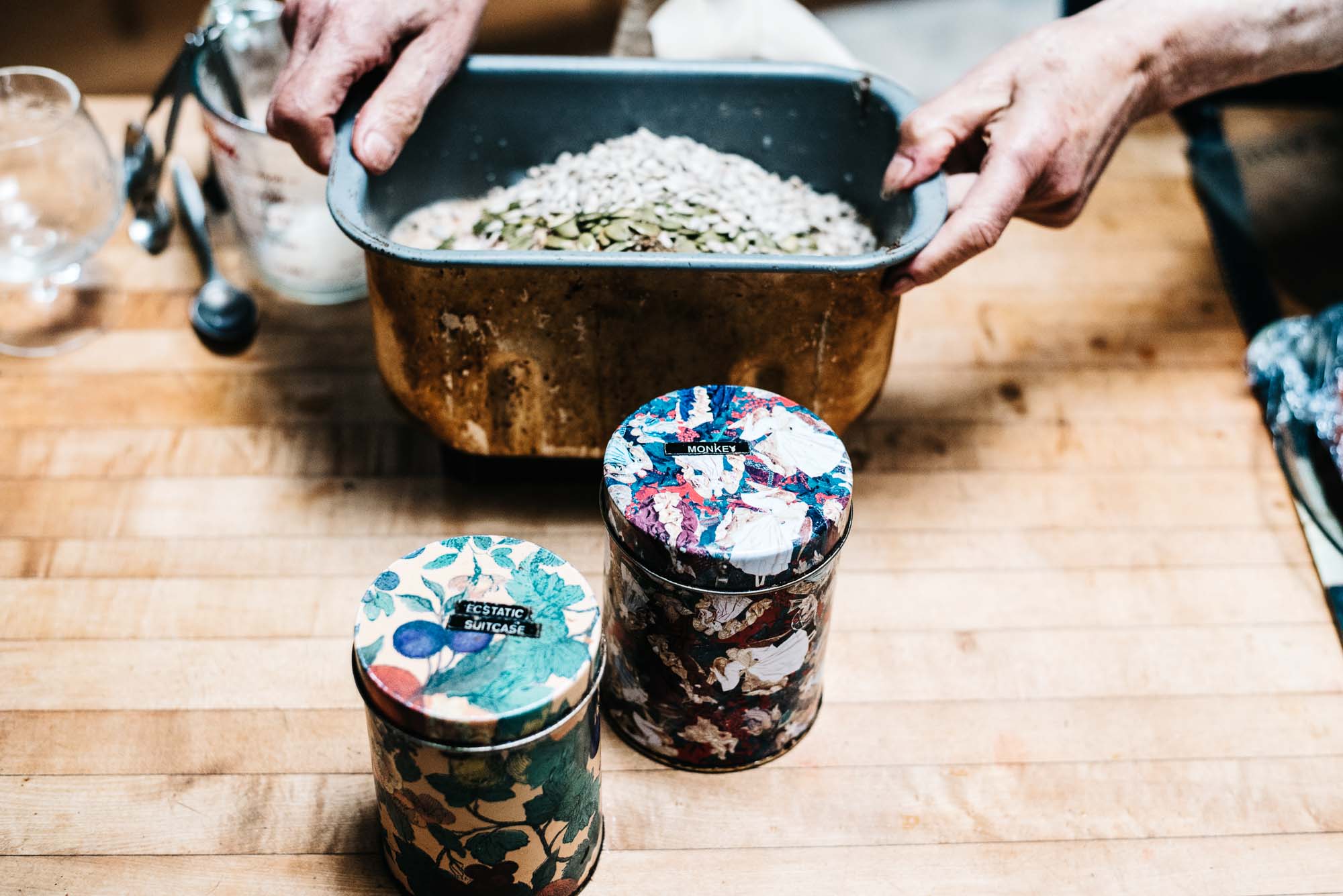
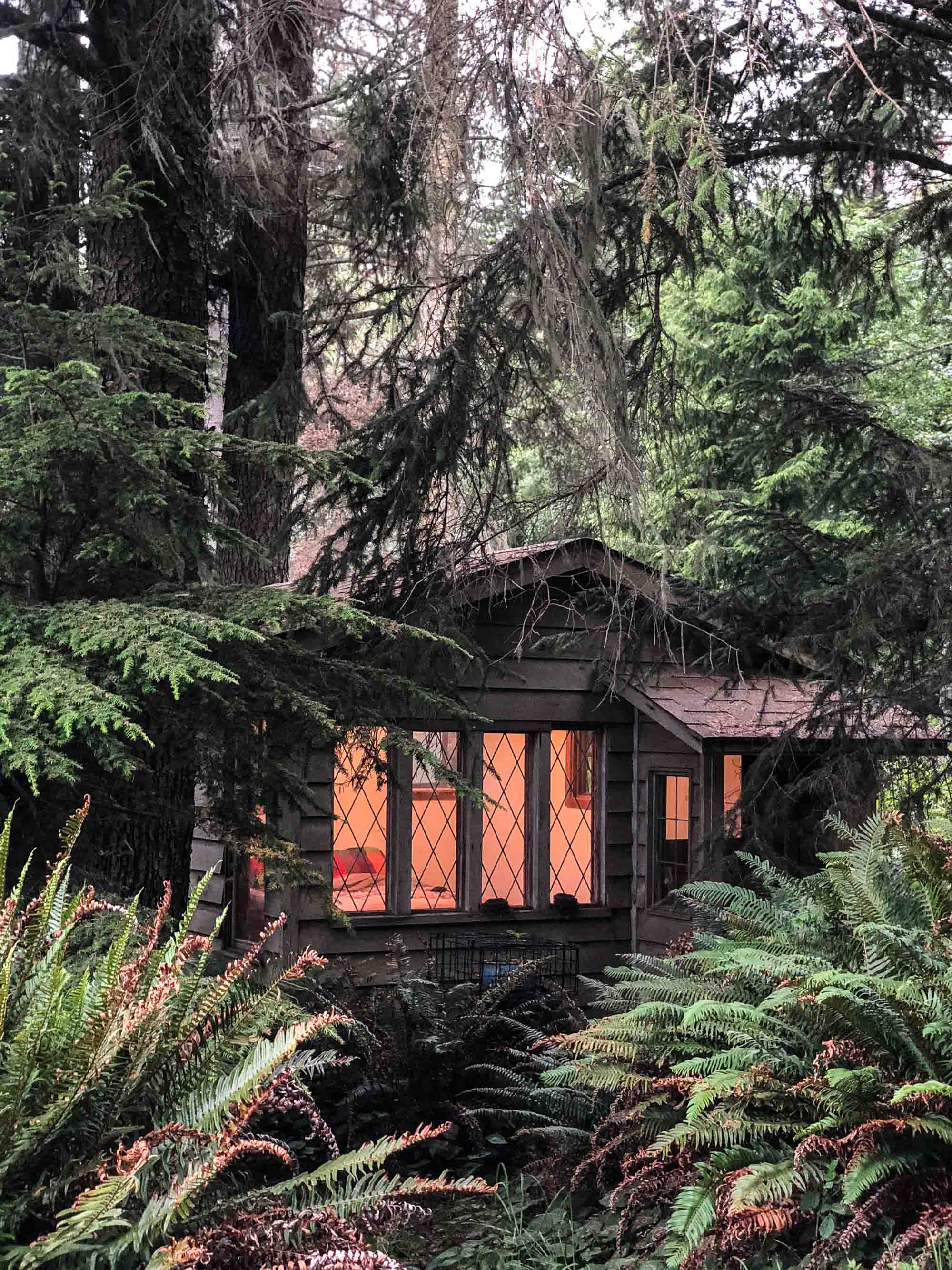
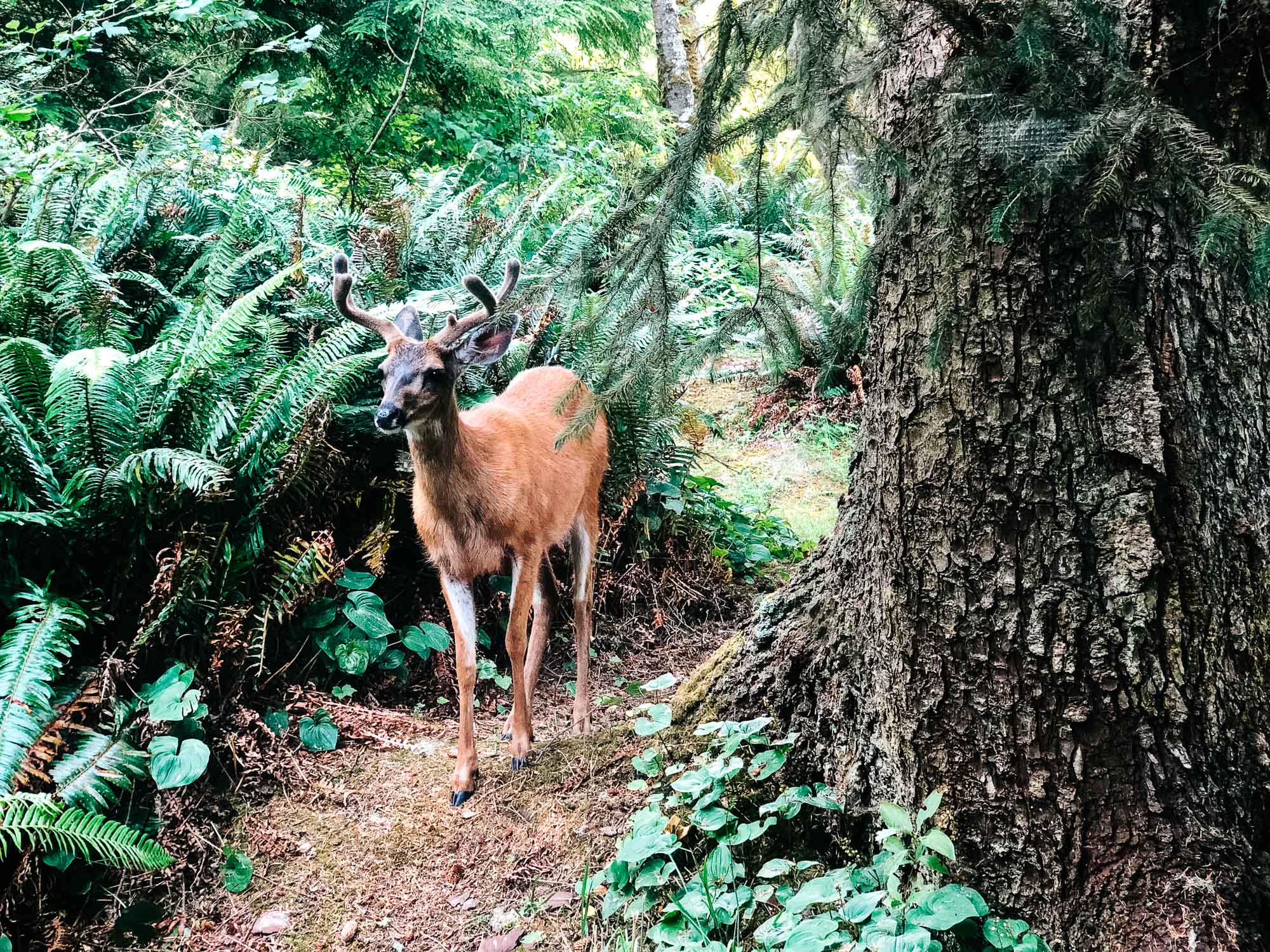
AT THE BEACH AT OTTER POINT
Wendy Morton & Lily Diamond
We find kelp coils,
eagle feathers,
smoke,
drought trees,
a bark bracelet,
tidal spume,
a driftwood cave,
stained glass kelp holding stones,
sky divide.
The memory of killer whales.
The tide.
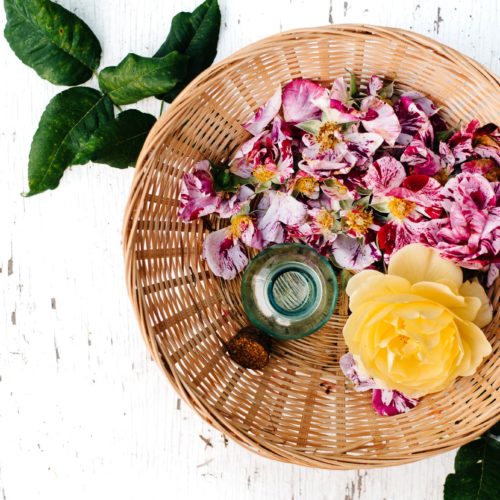
HOMEMADE ROSEWATER
Ingredients
- 8 cups lightly packed fresh, fragrant rose petals
- 5 cups water
- tons of ice
Instructions
- Select a large stockpot with a lid that has a knob you can unscrew. You will invert the lid (see pictures) so the steam can drip down the middle, hence removing the knob.
- Pluck the rose petals and place them in the stock pot. Create some space in the center of the pot and place a large canning lid screw band ring in the middle. Place a small bowl on top of the screw band ring. This is what will catch the rosewater as it drips down from the inverted lid.
- Pour about 5 cups of water into the bottom of the pot, or enough for the water to reach about halfway up the rose petals.
- Cover with the inverted lid, and fill the top with ice cubes. Turn heat to medium, and bring to a boil. Reduce heat to low.
- As the ice melts, use a ladle to scoop out the water and add more ice cubes. Continue for 20 minutes or so, until most of the water around the base of the roses is gone.
- Remove from heat and pour the distilled rosewater in the small bowl into a glass jar to cool. Once room temperature, seal and store in the fridge to preserve.
- Use rosewater in a spray bottle for a refreshing spritz throughout the day, in juices, lattes, desserts, and savory dishes, or in face cleansers, scrubs, masks, and toners. For more ideas, see the ROSE chapter of Kale & Caramel cookbook.


